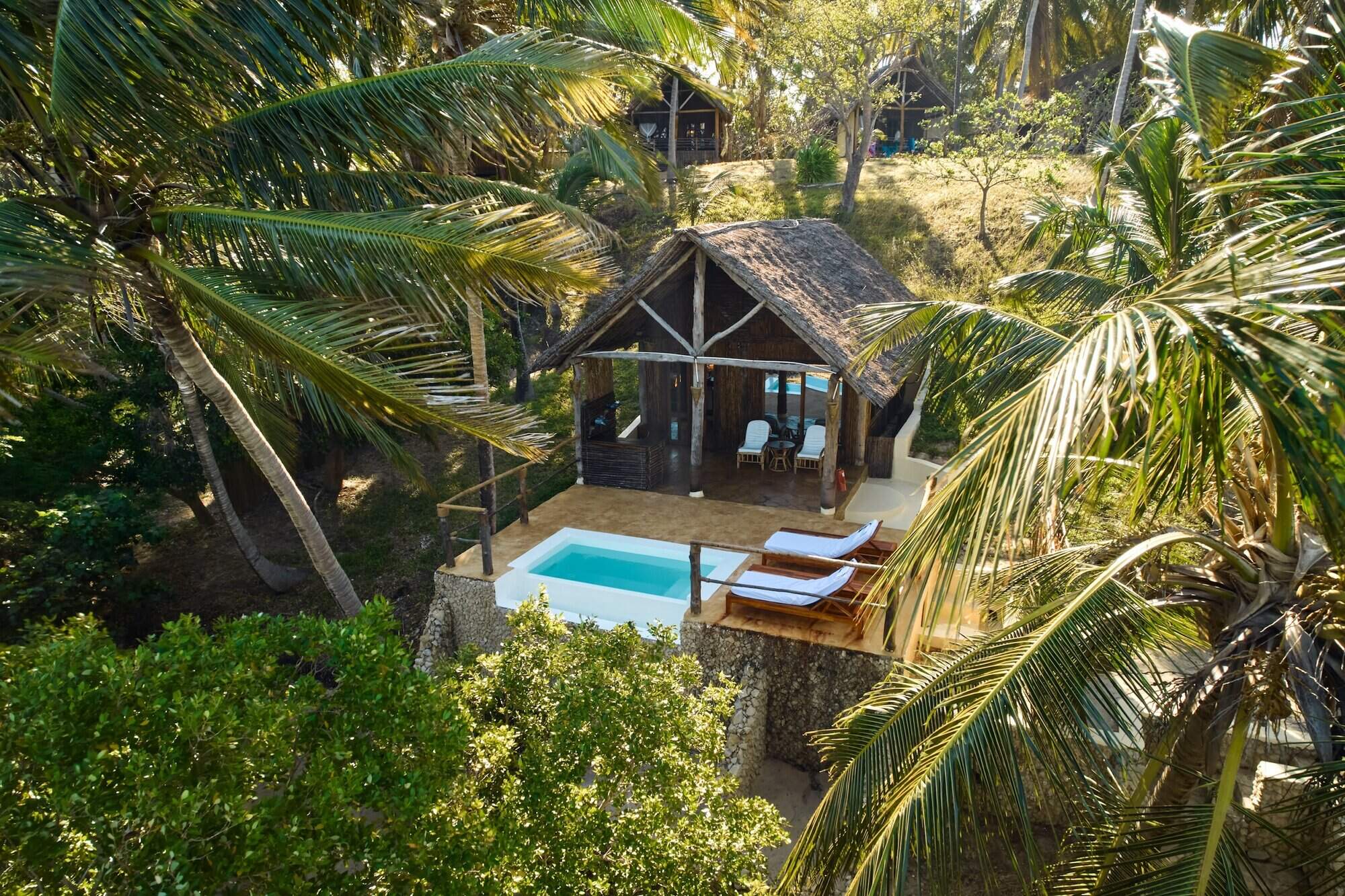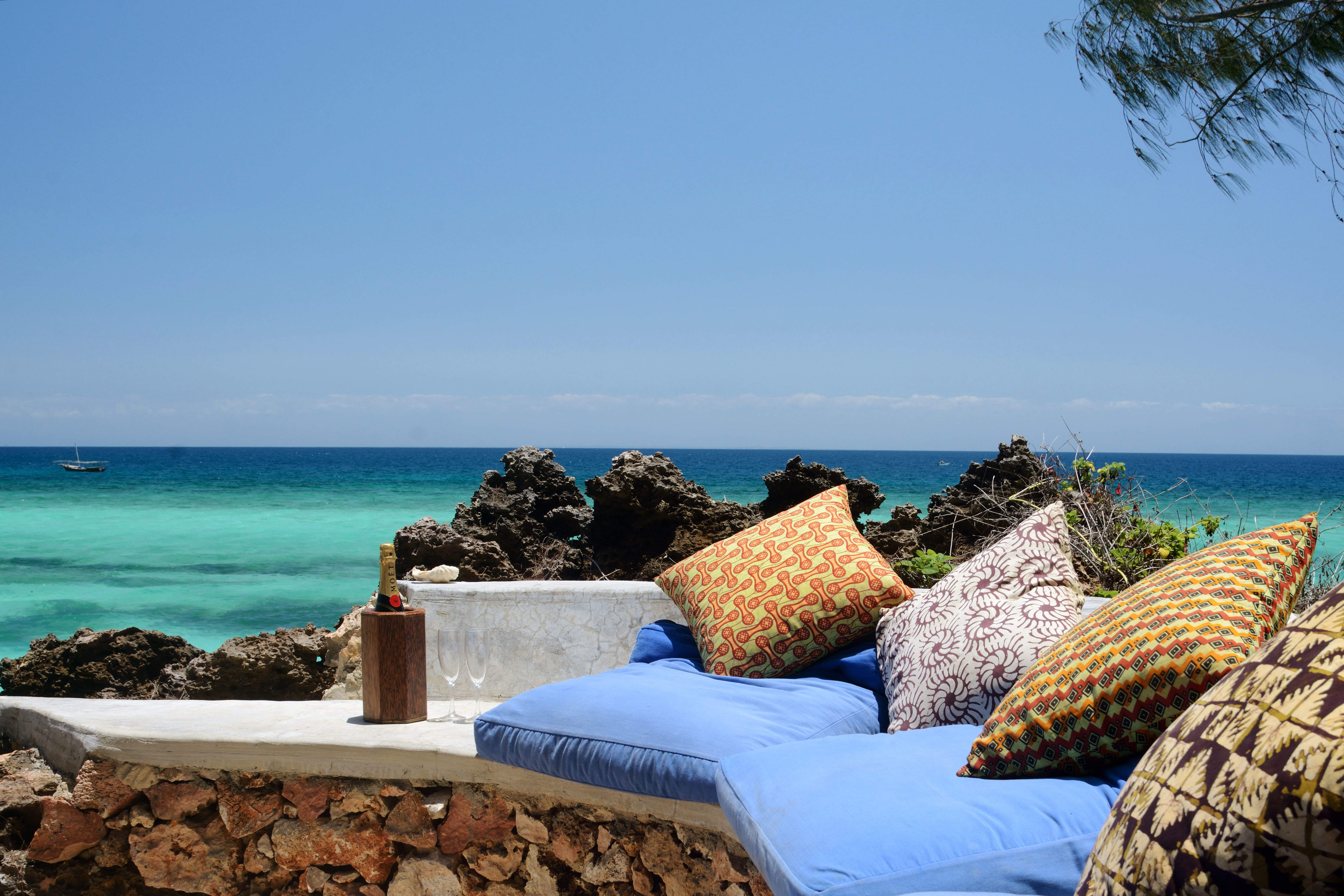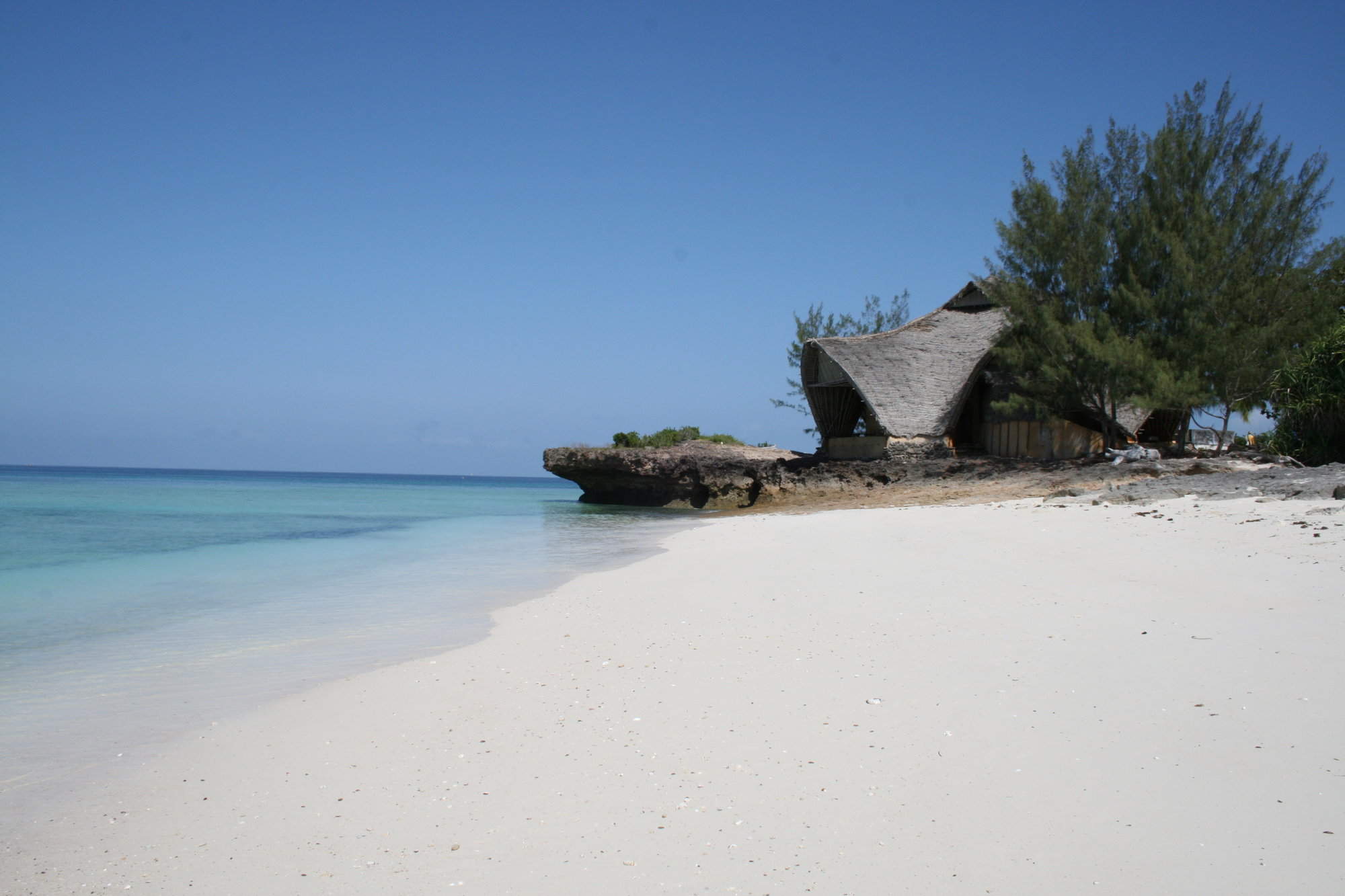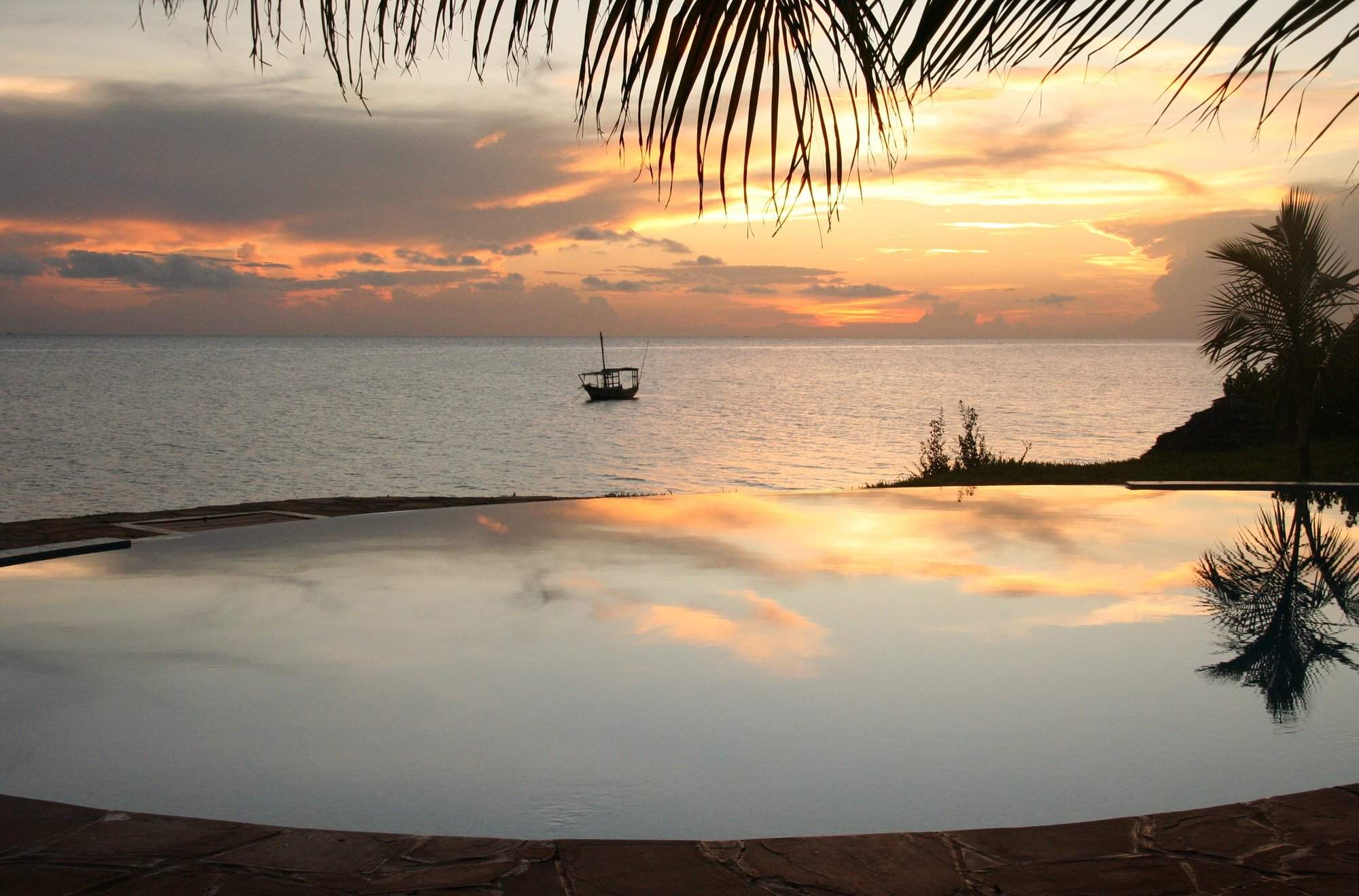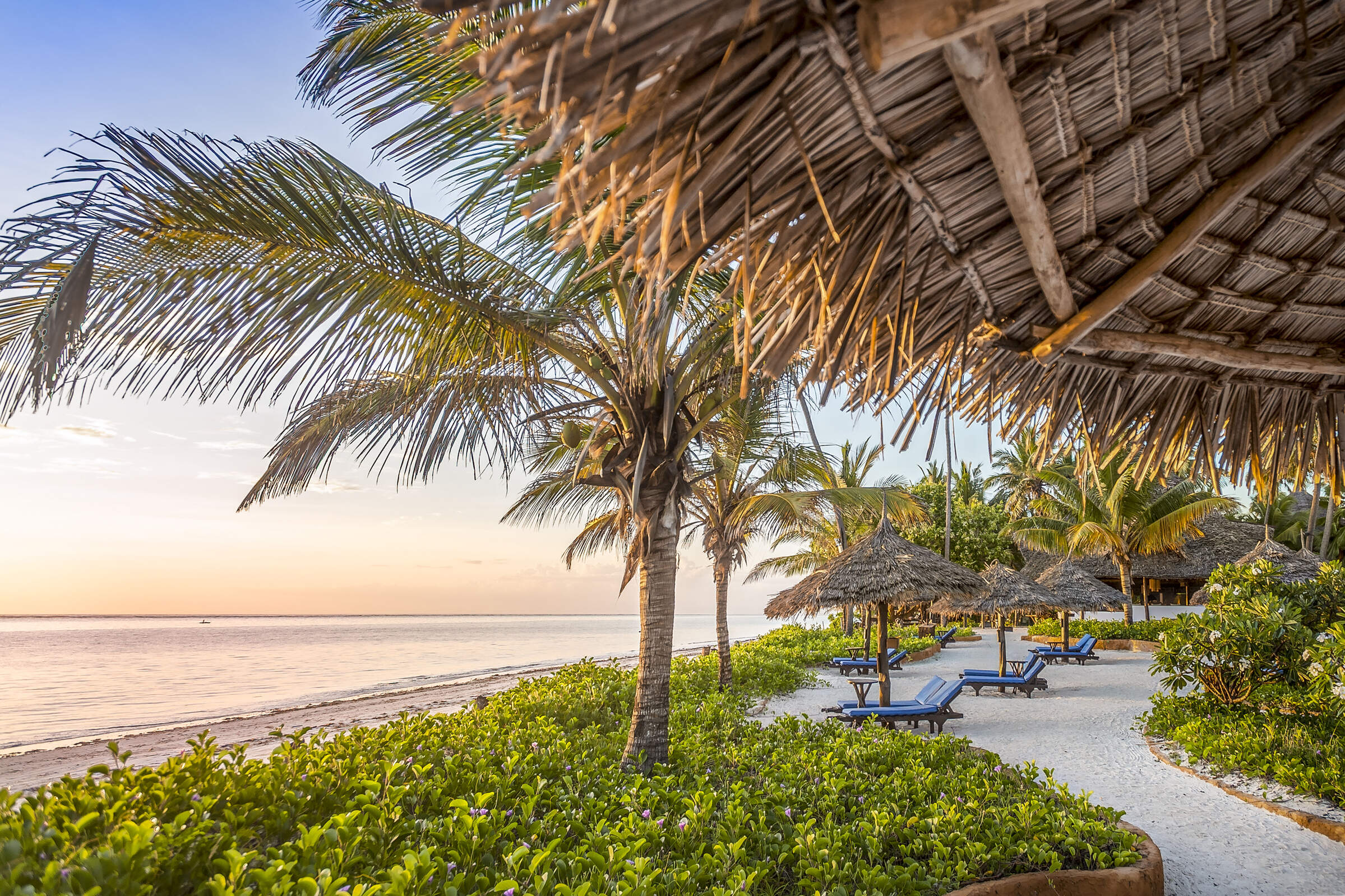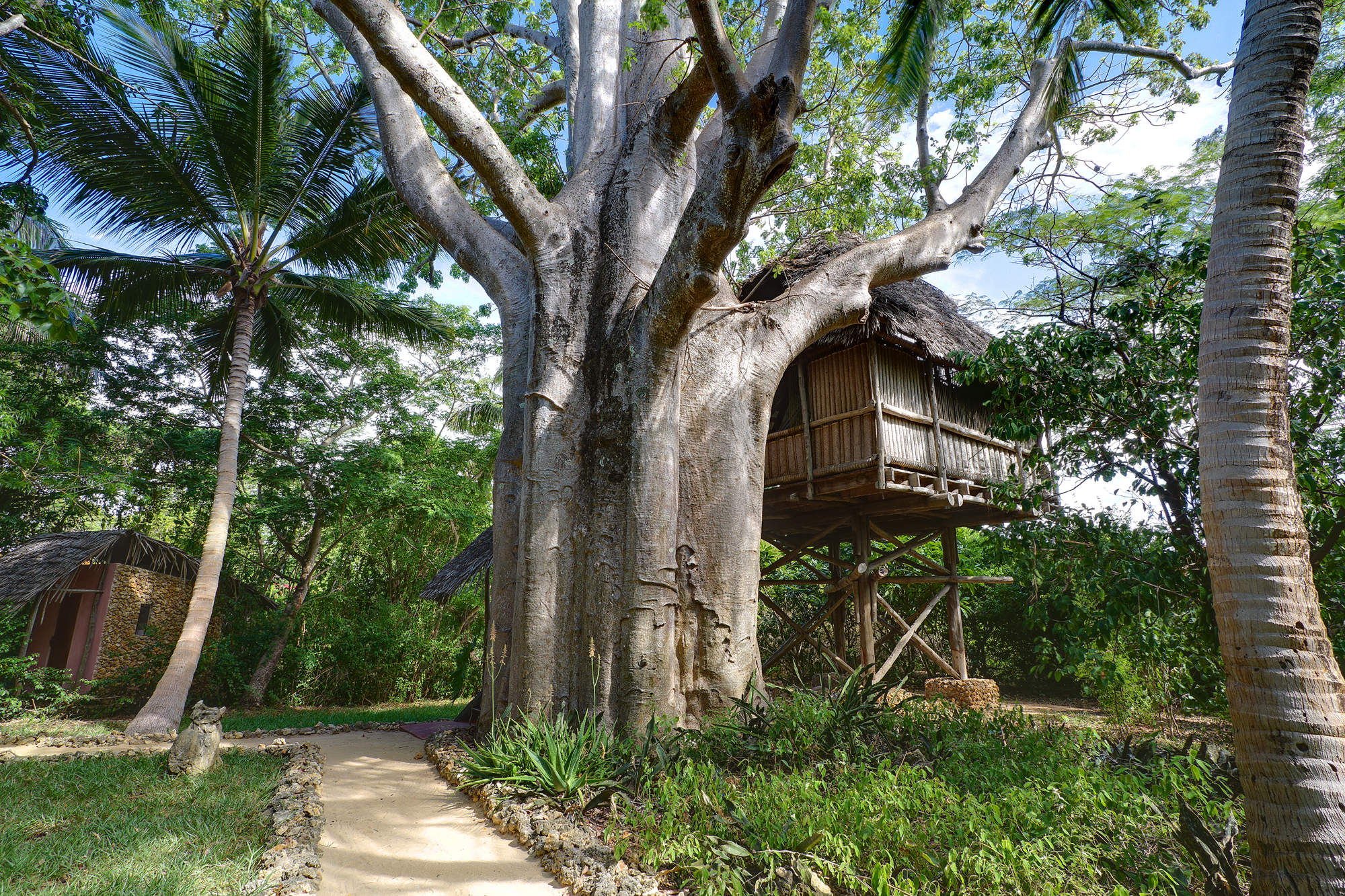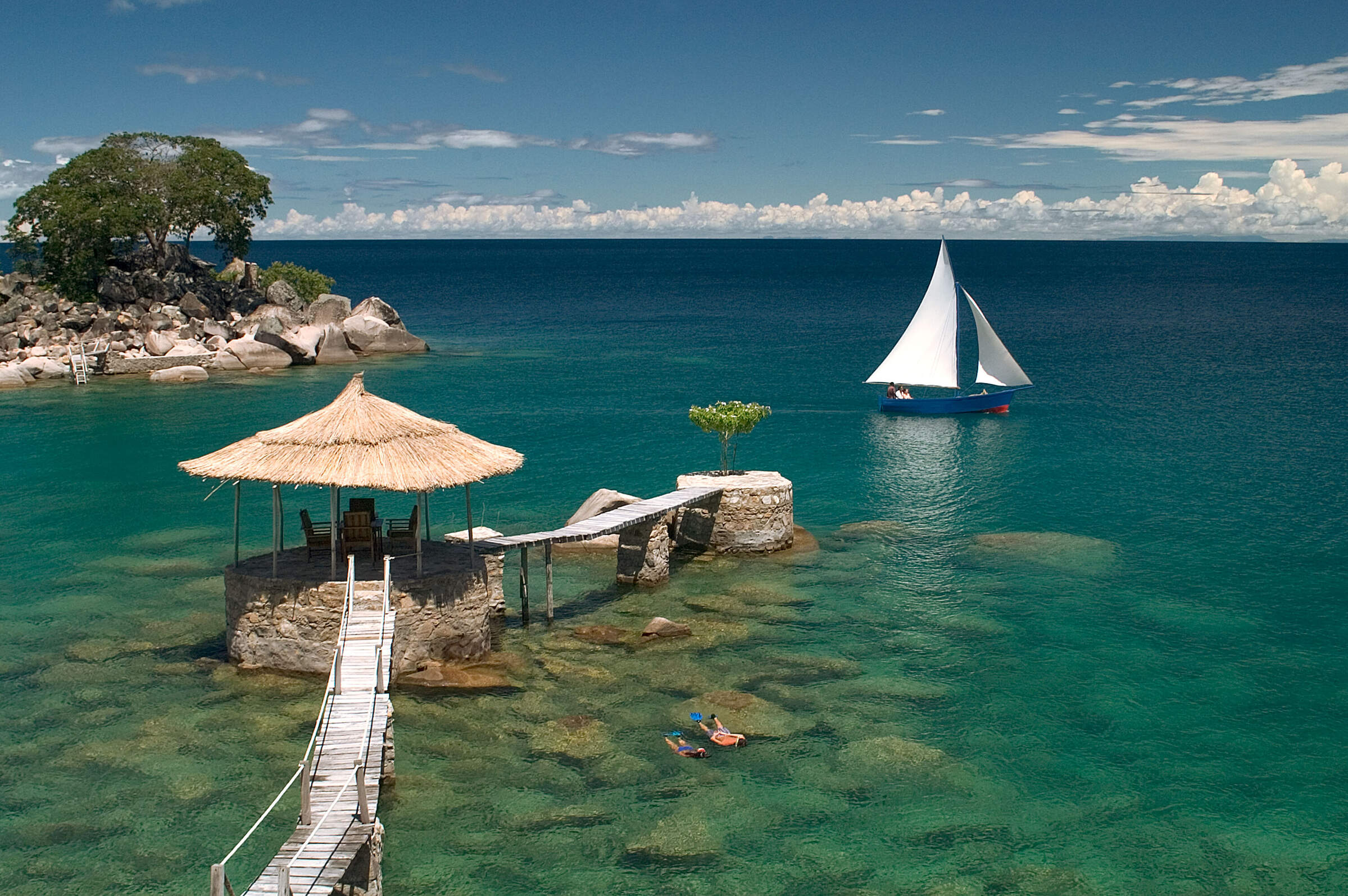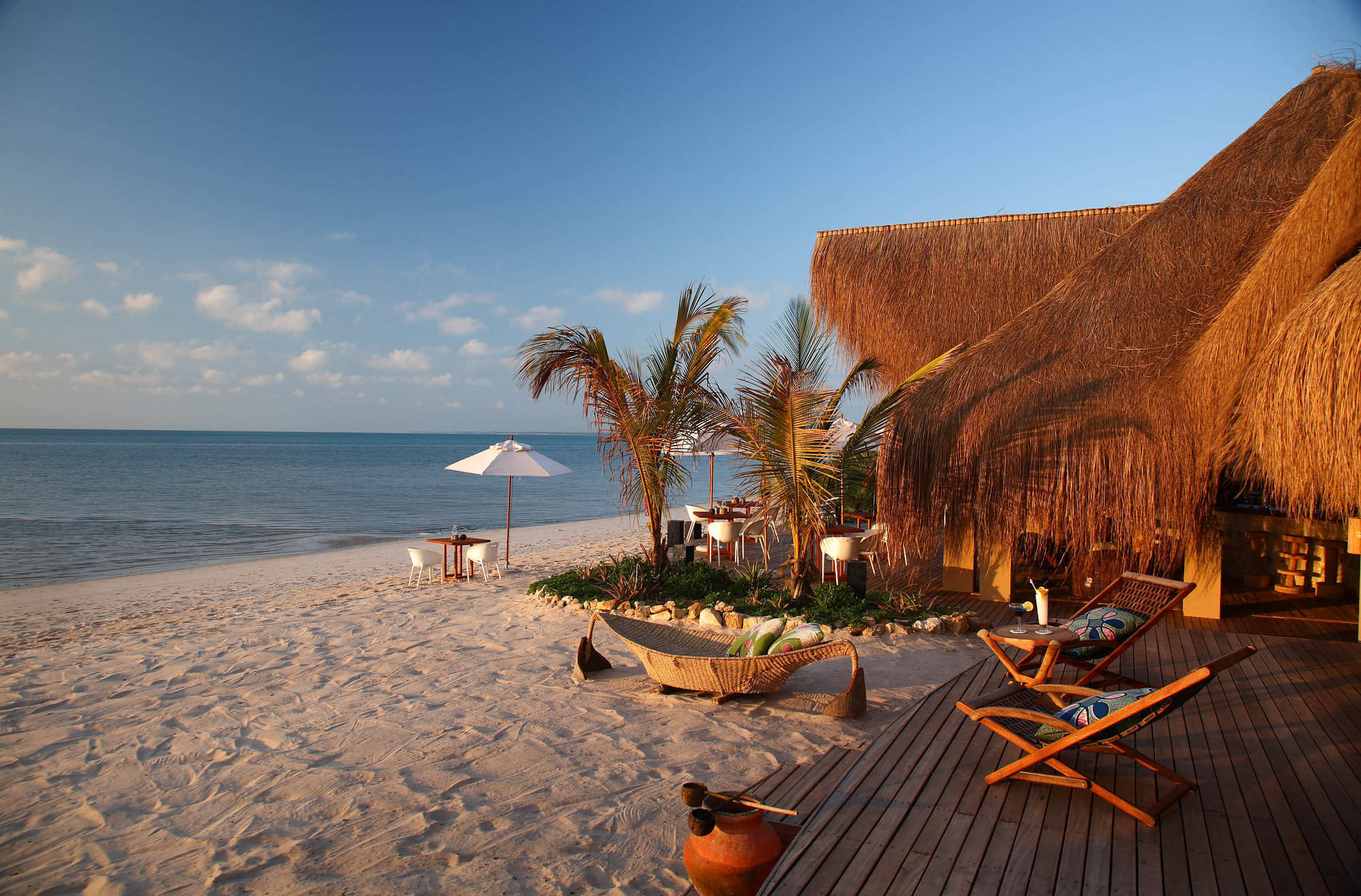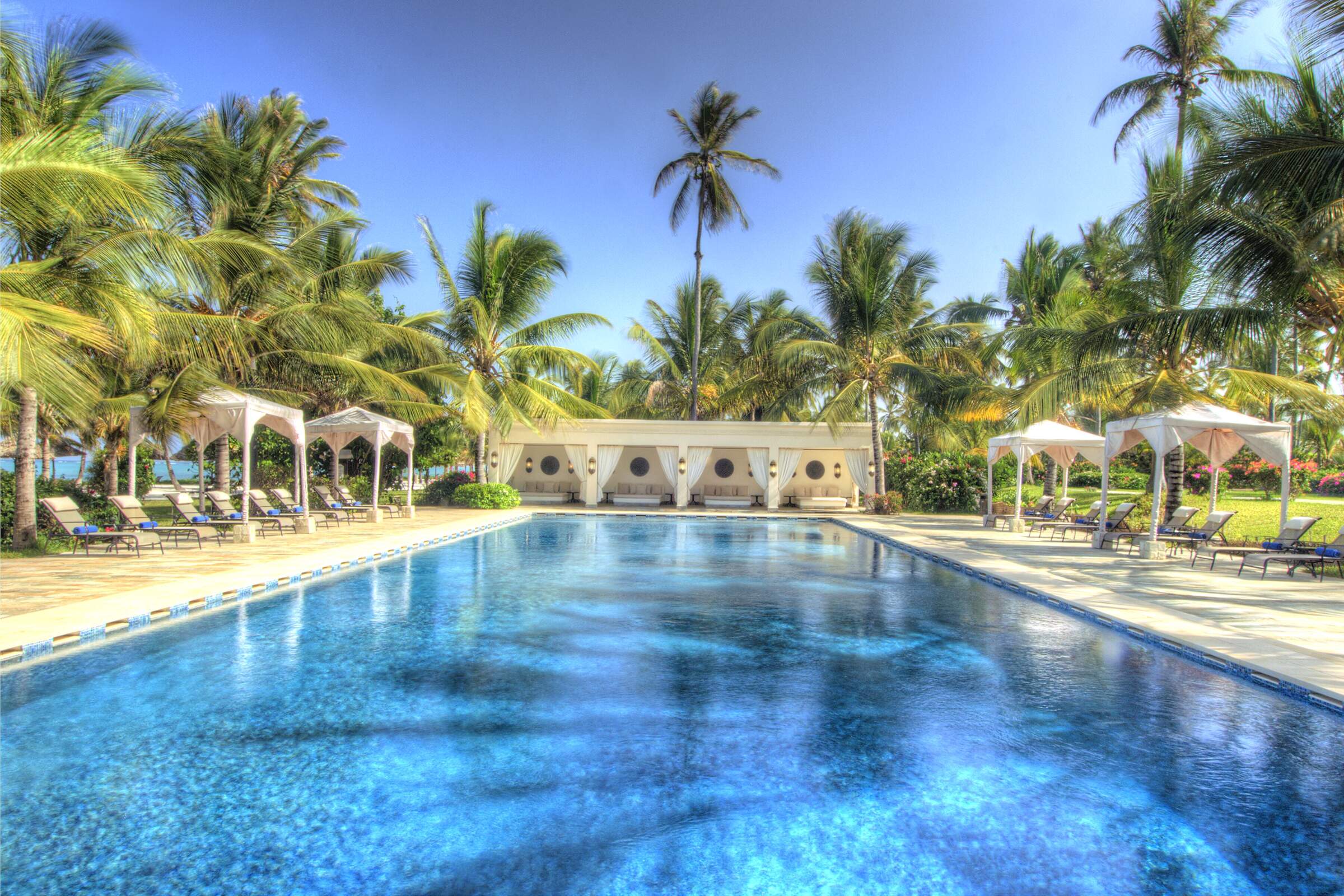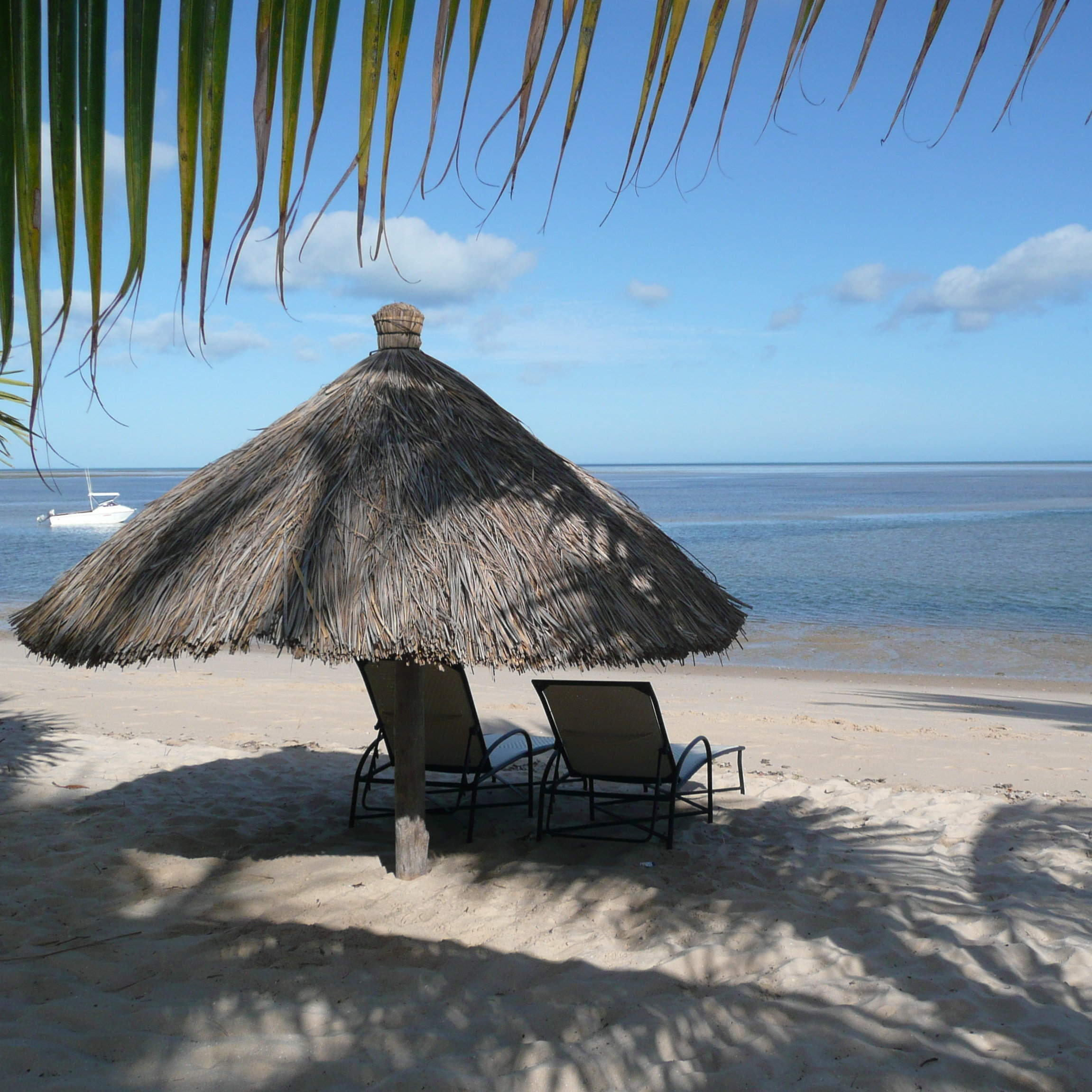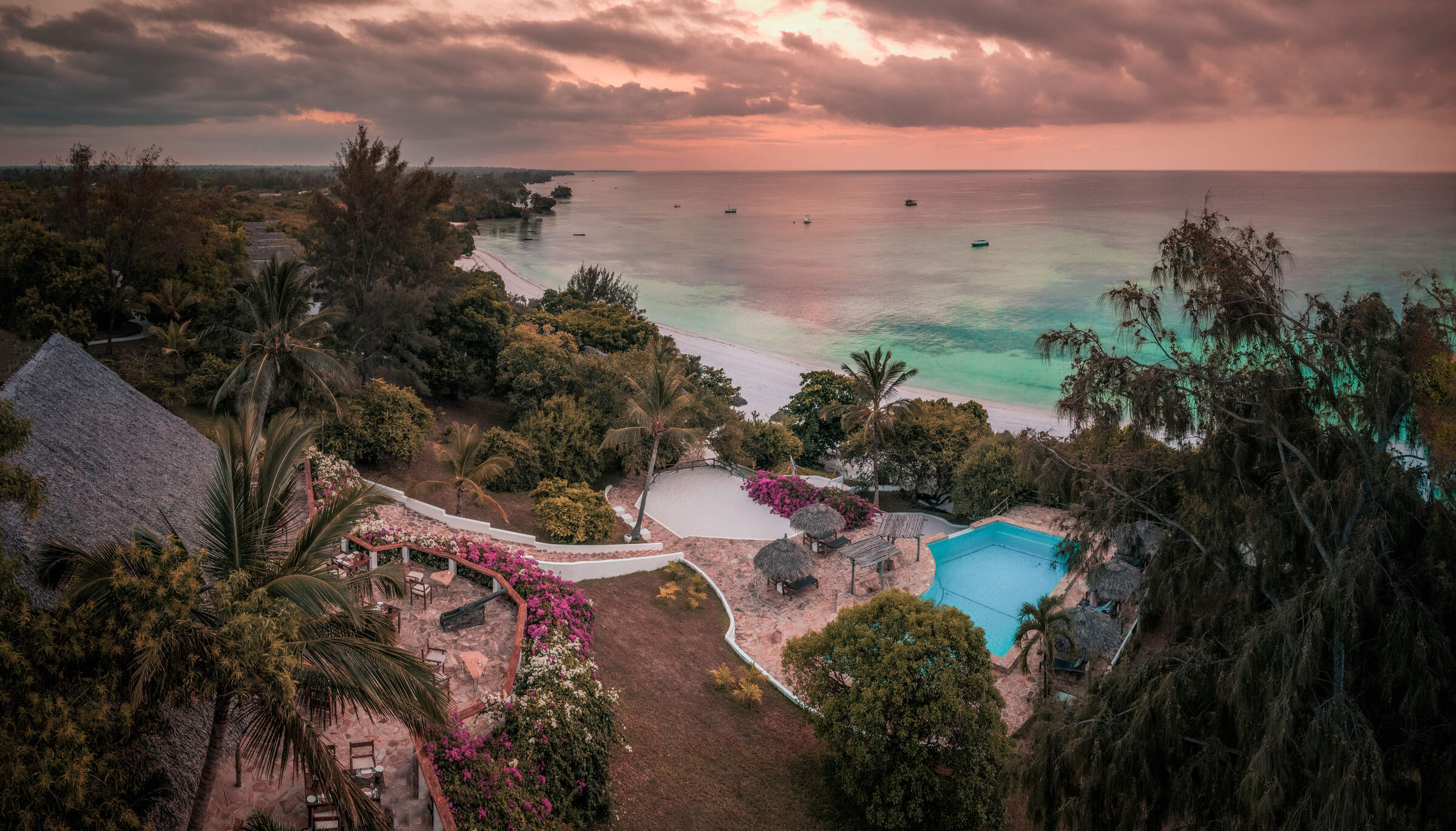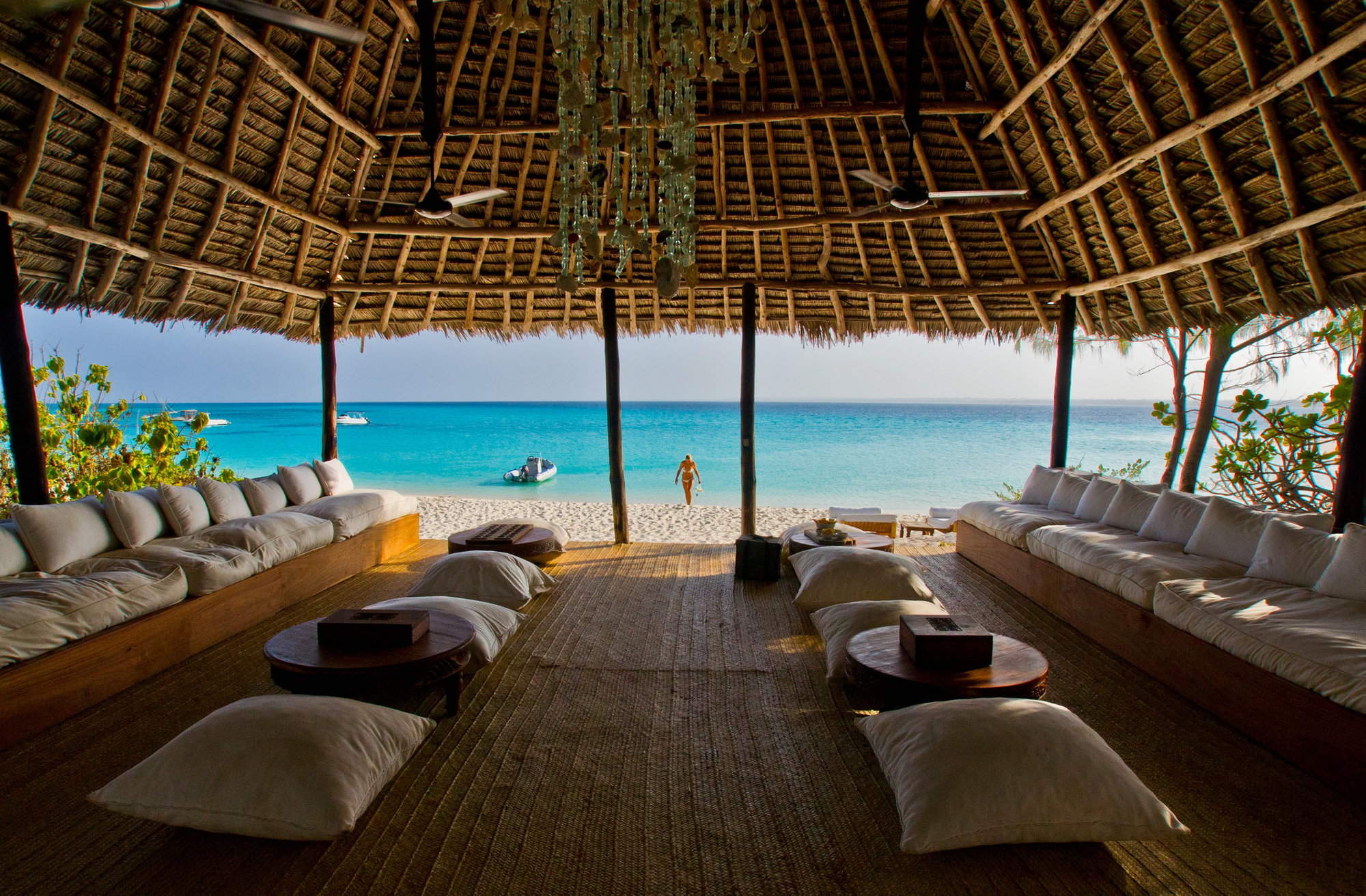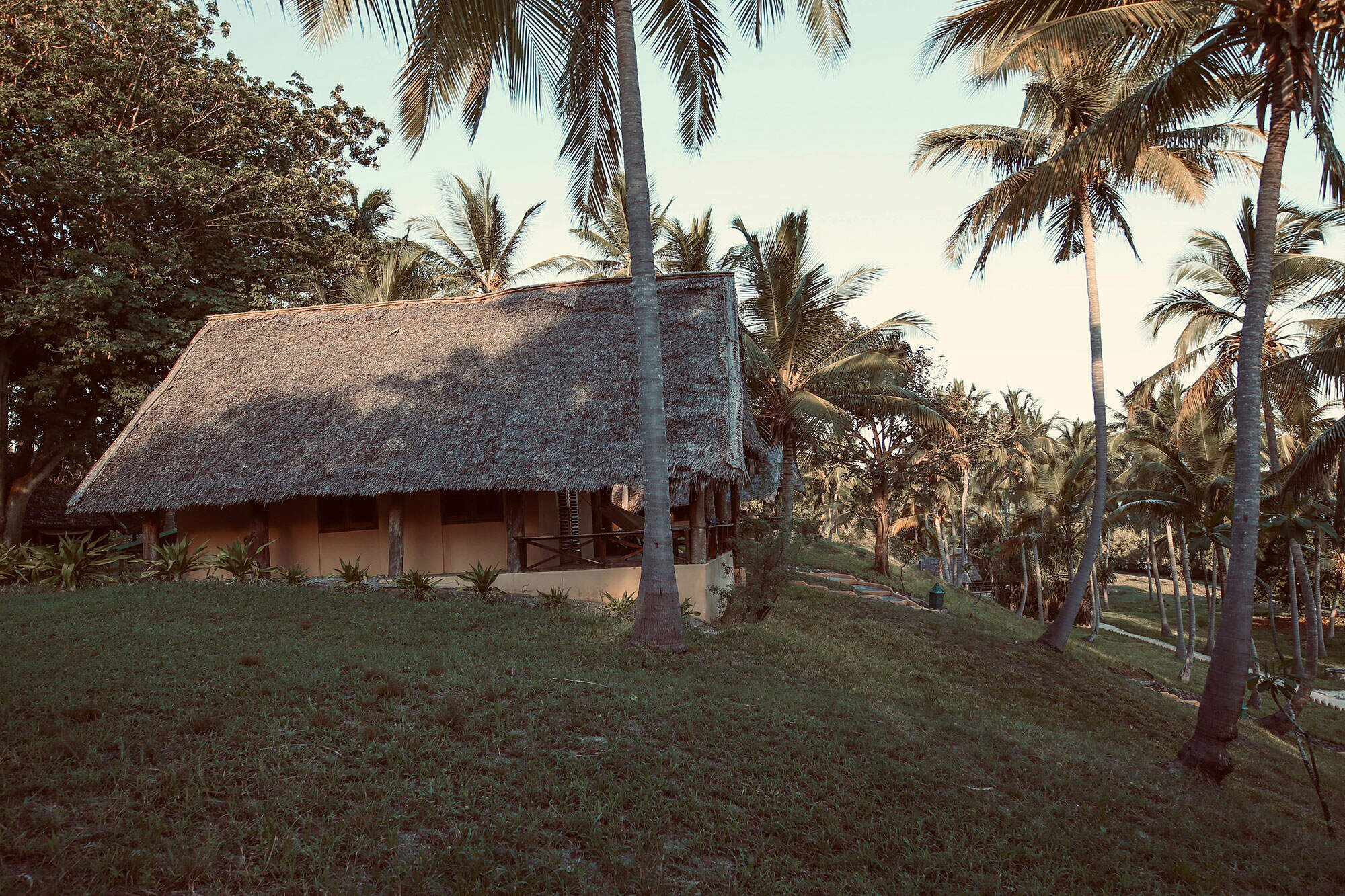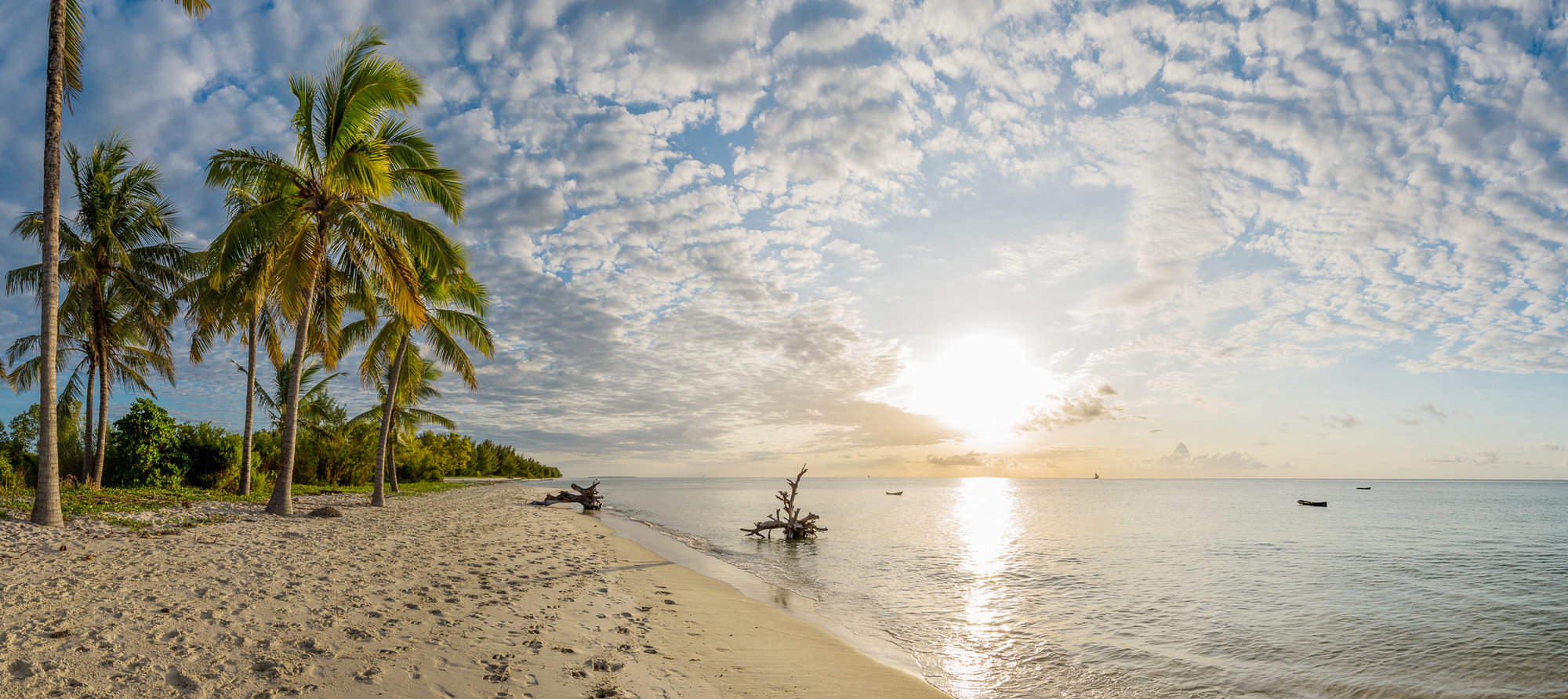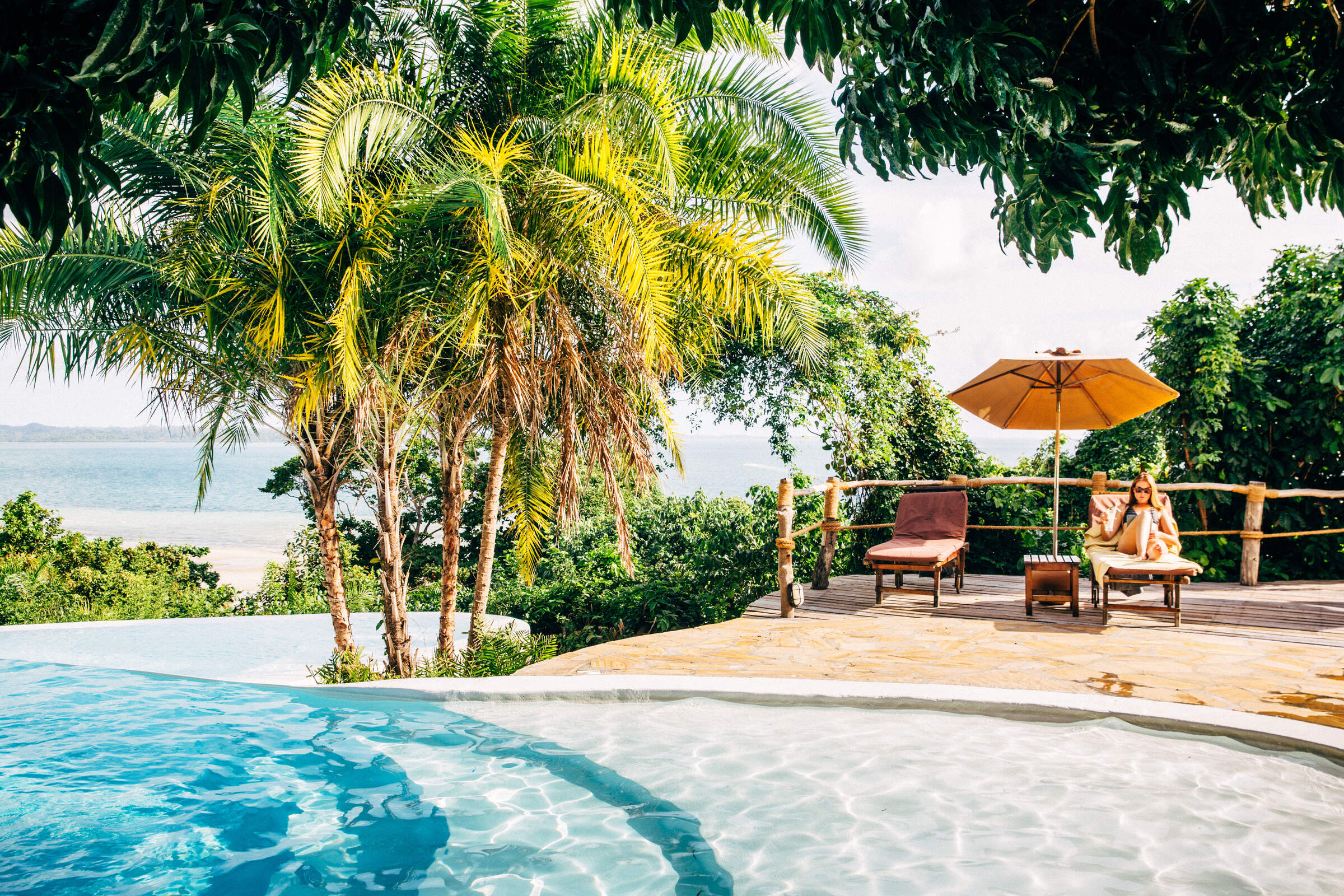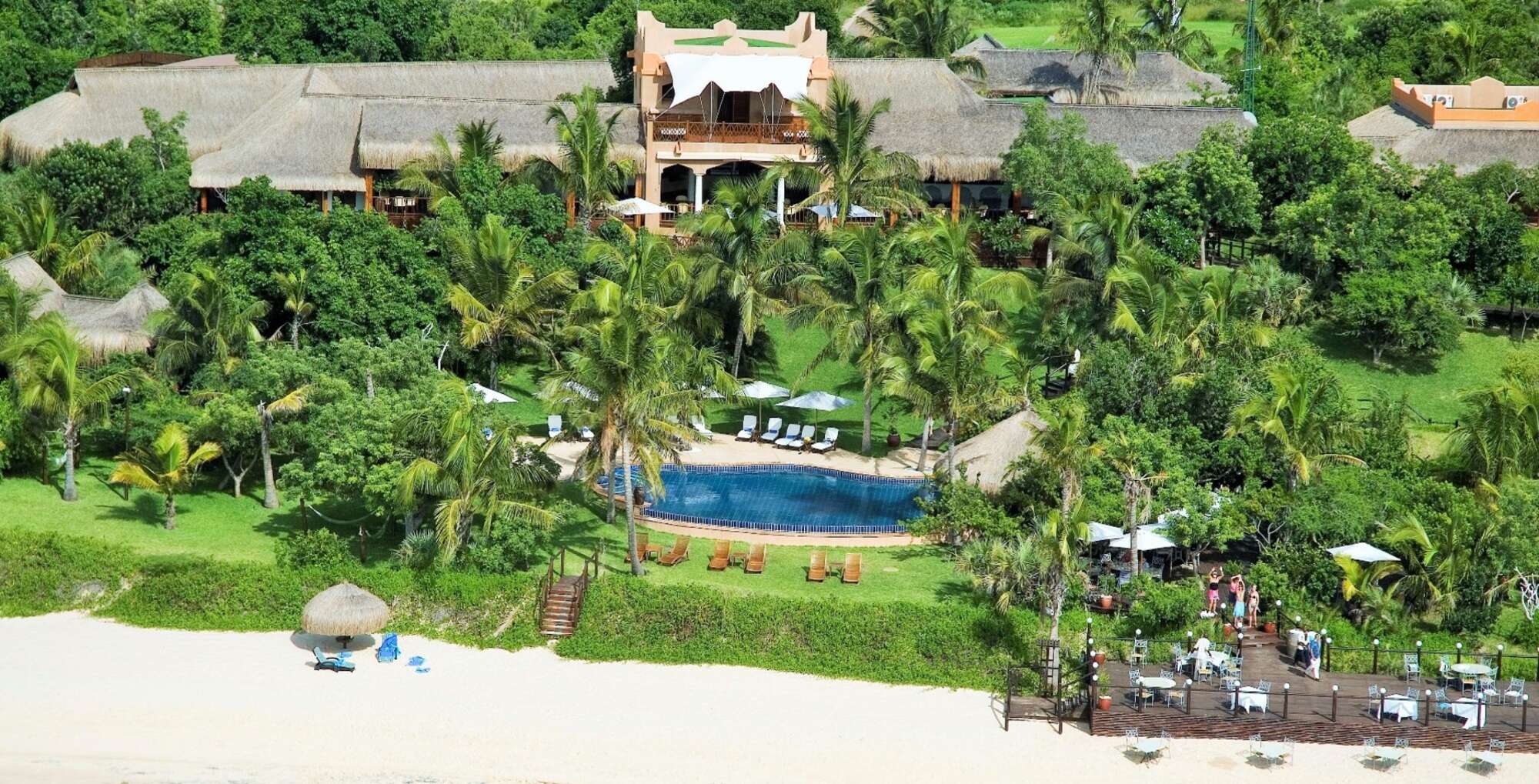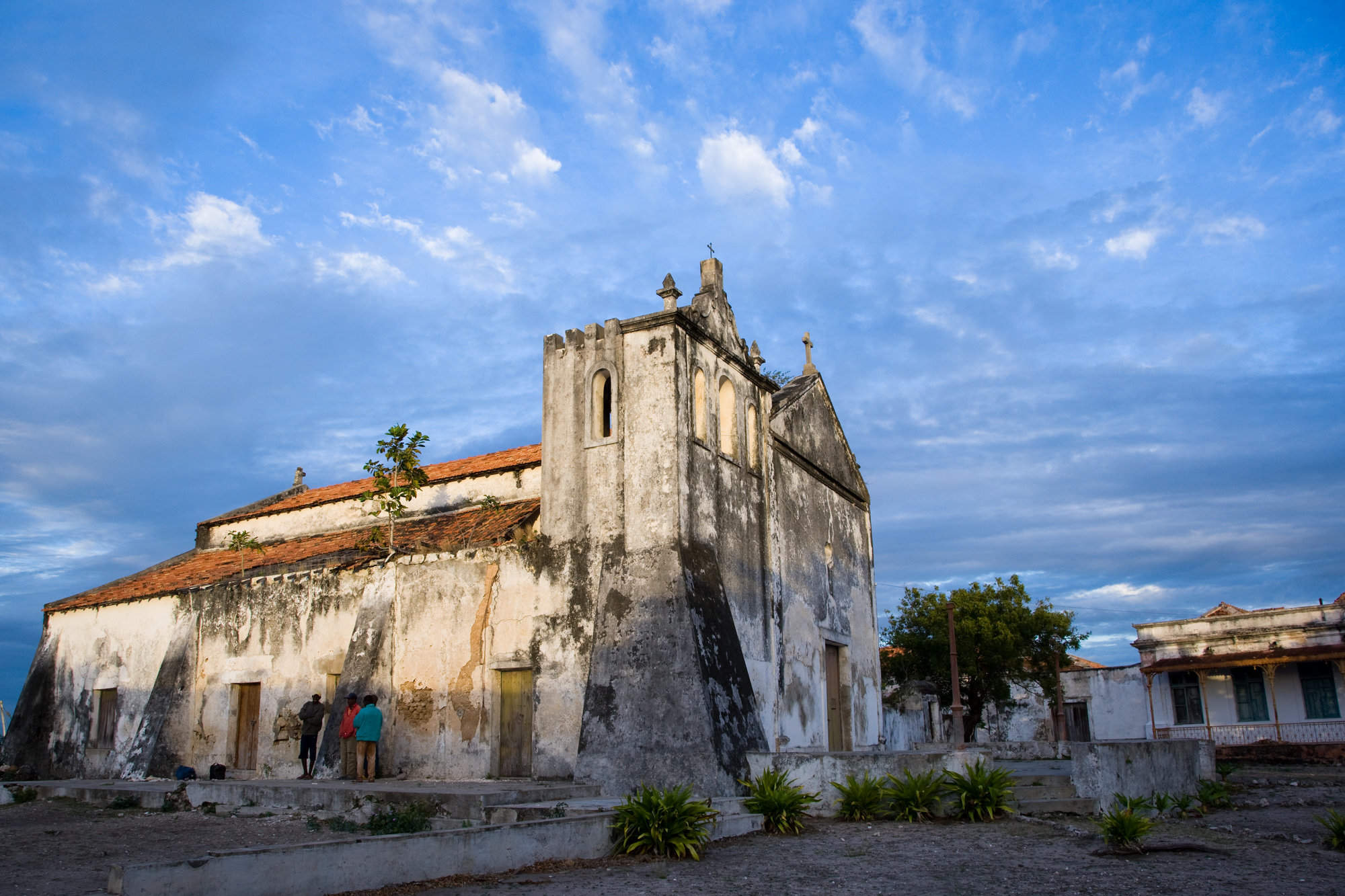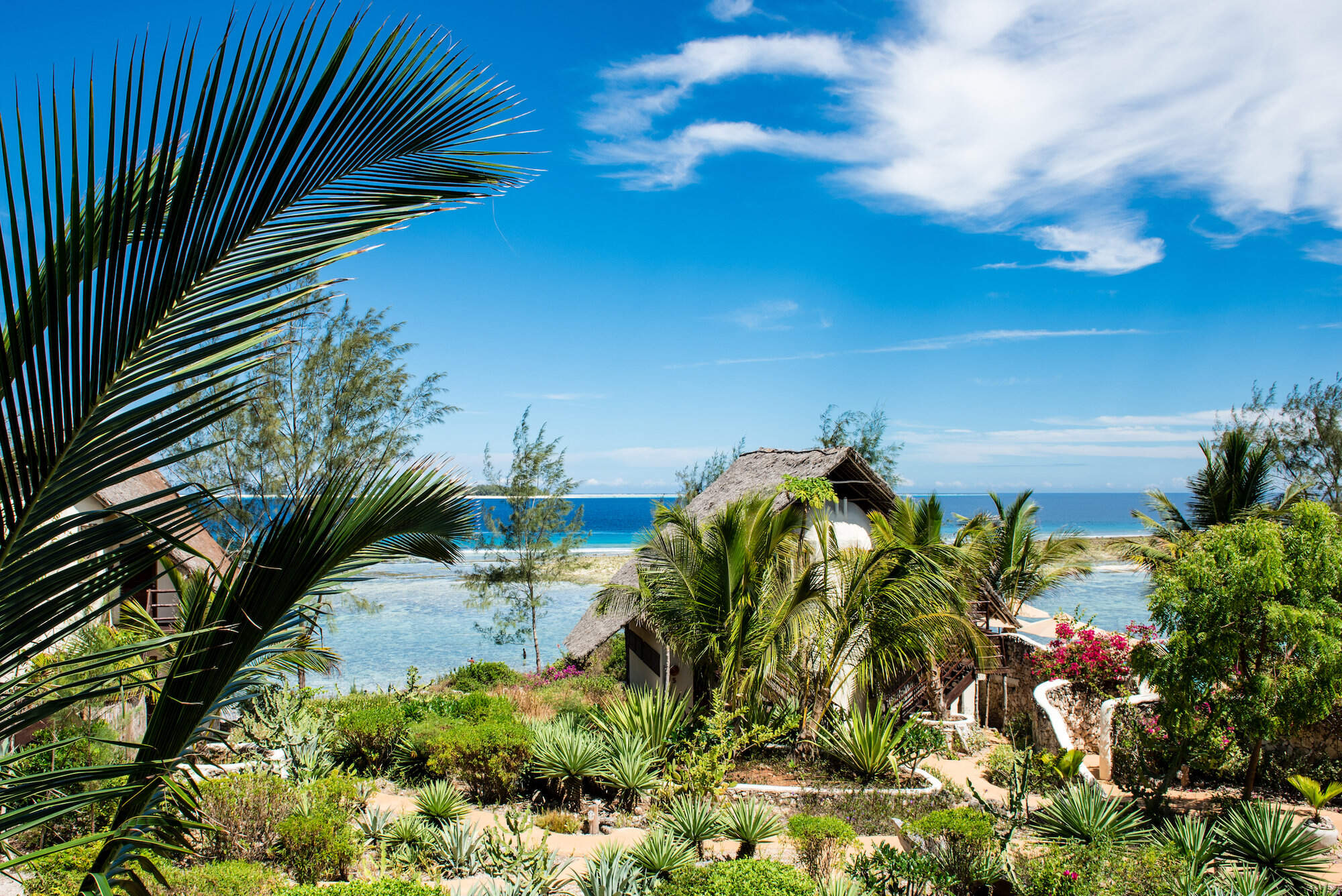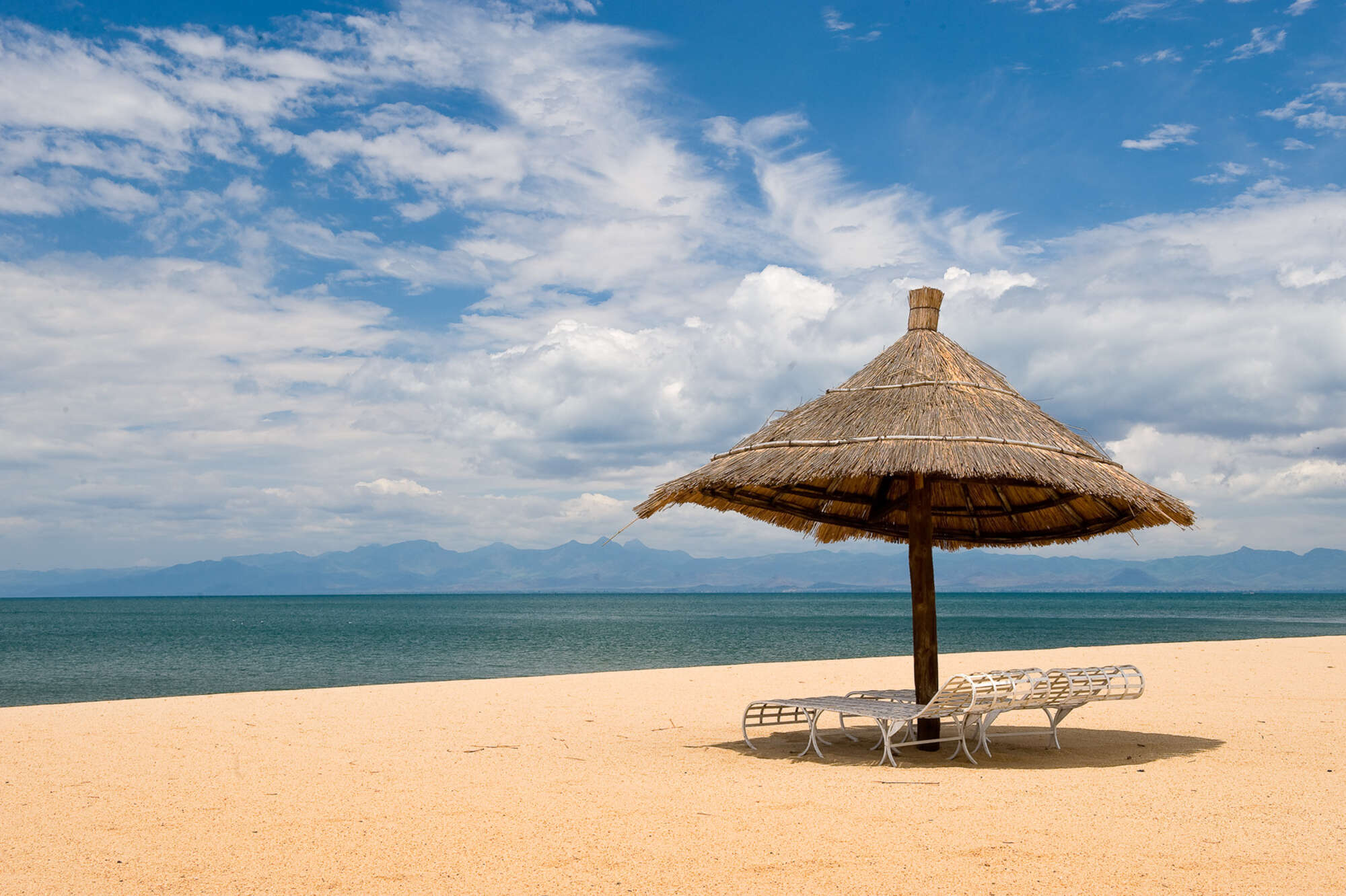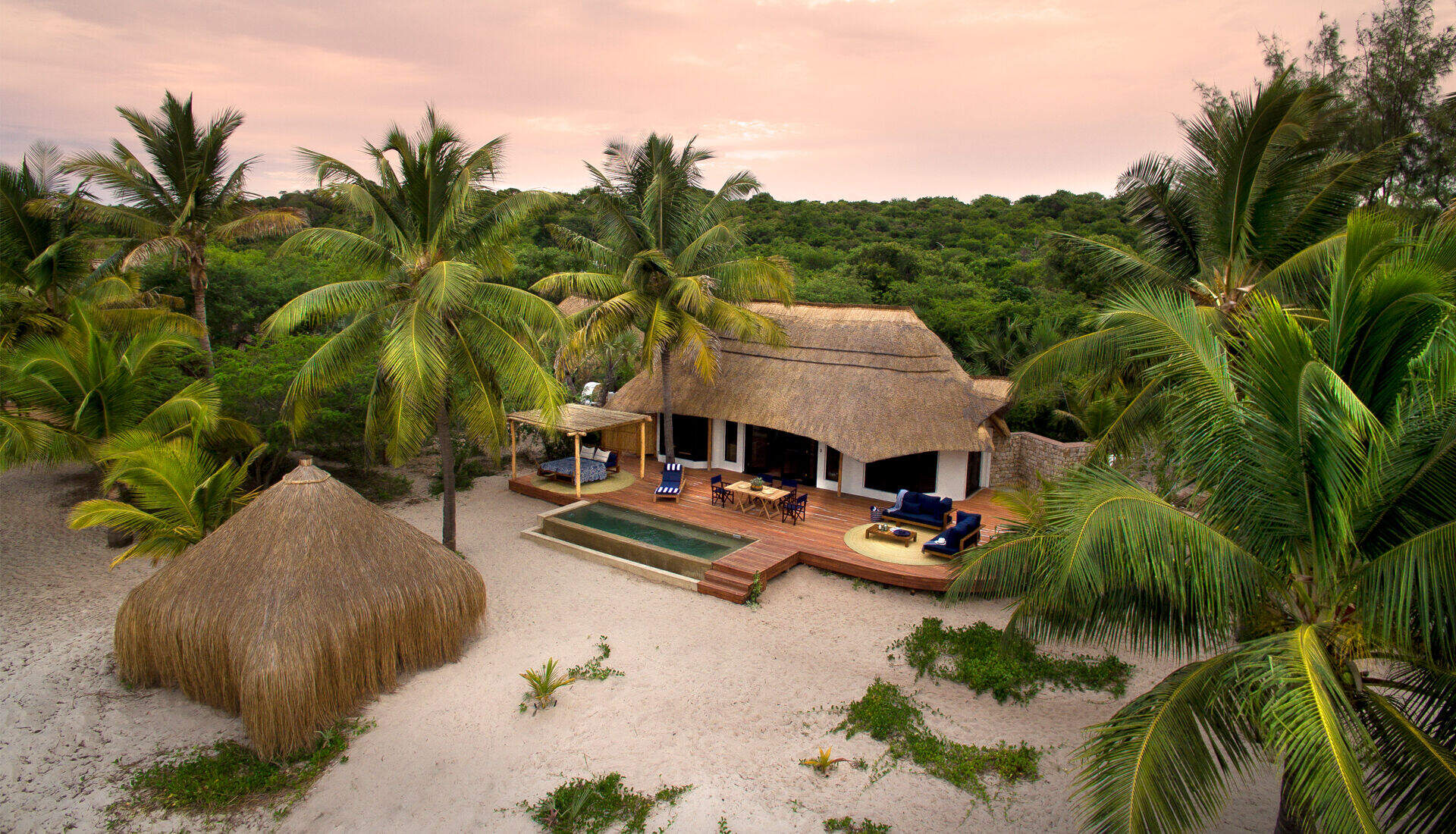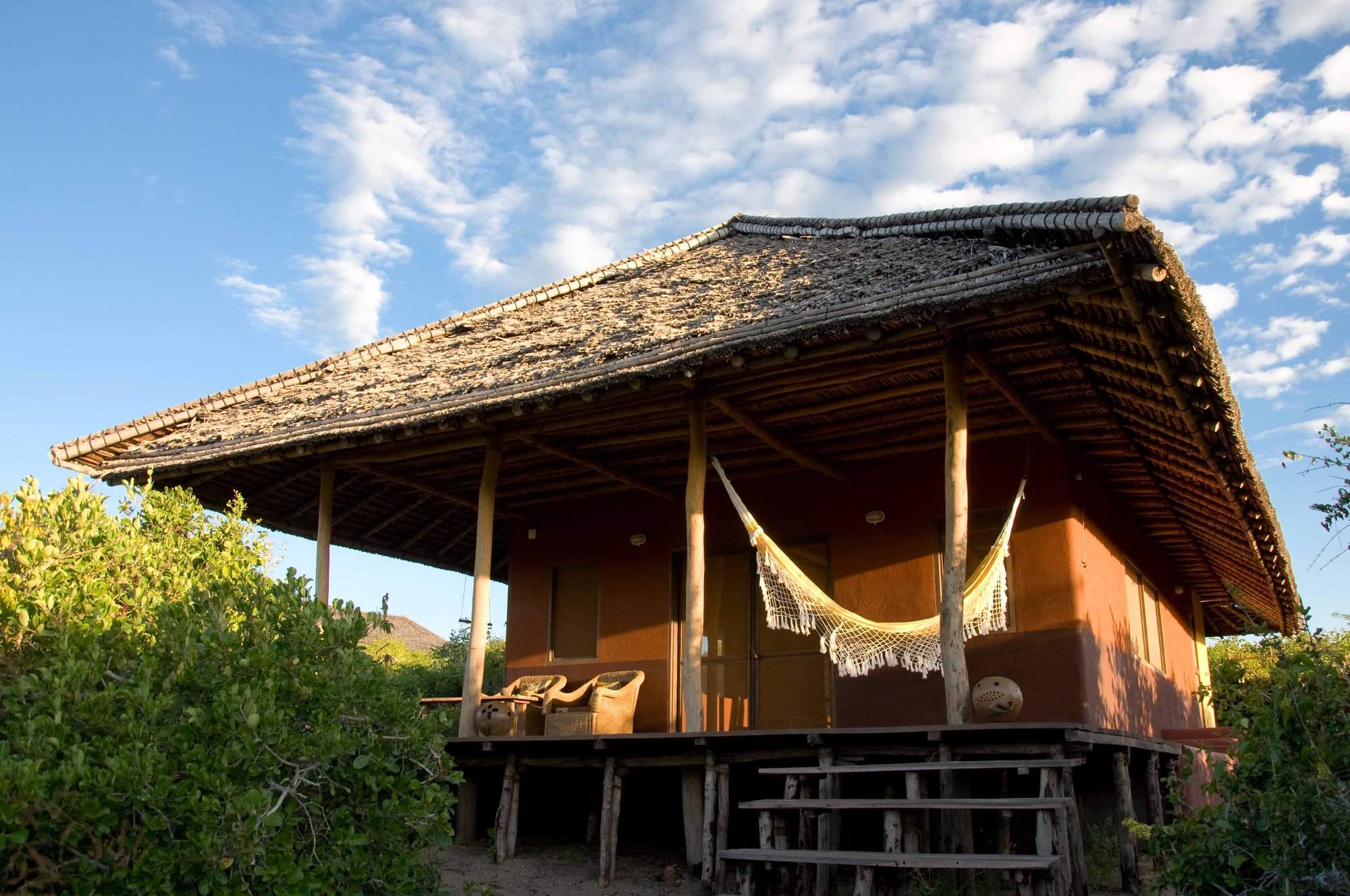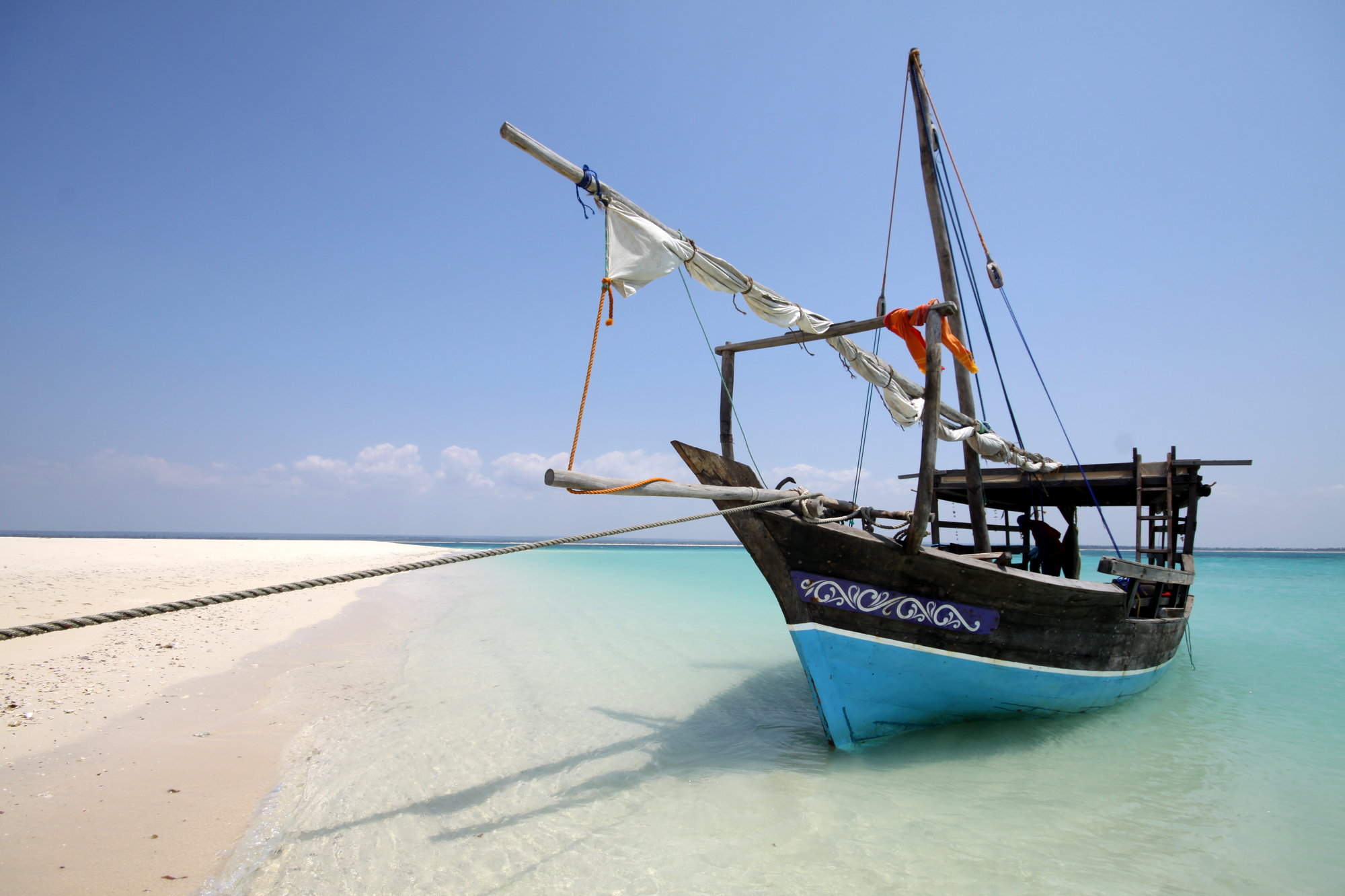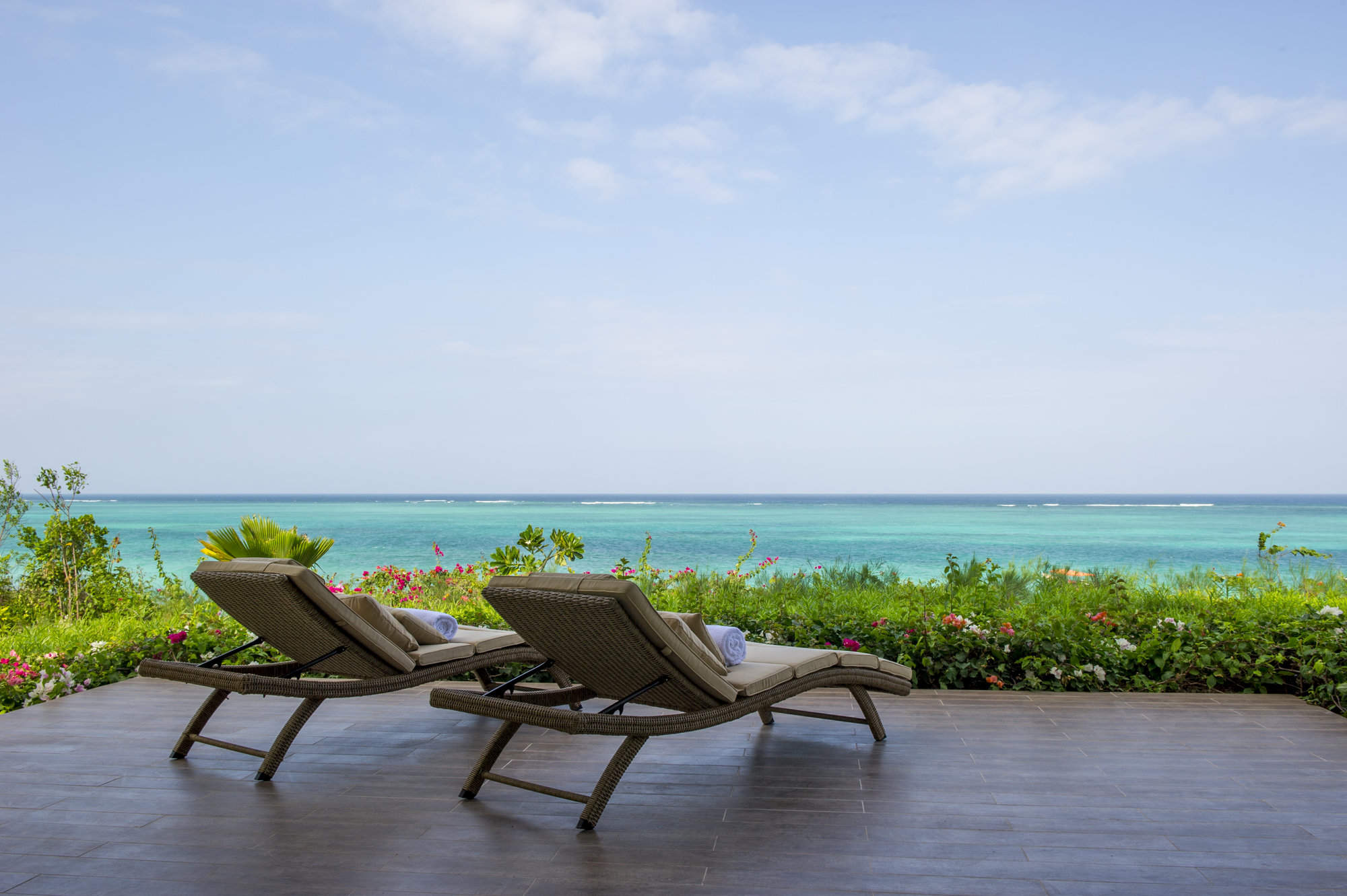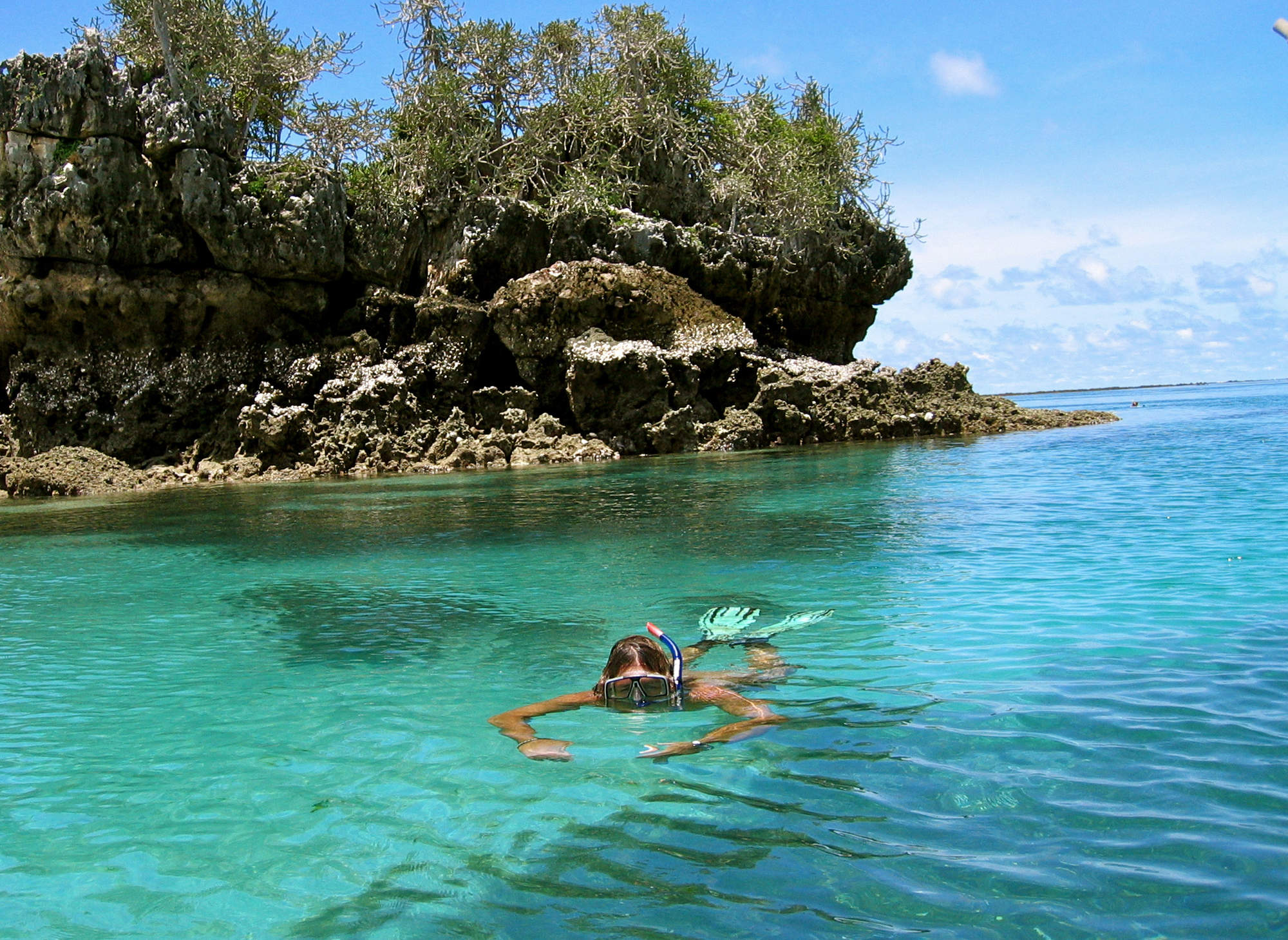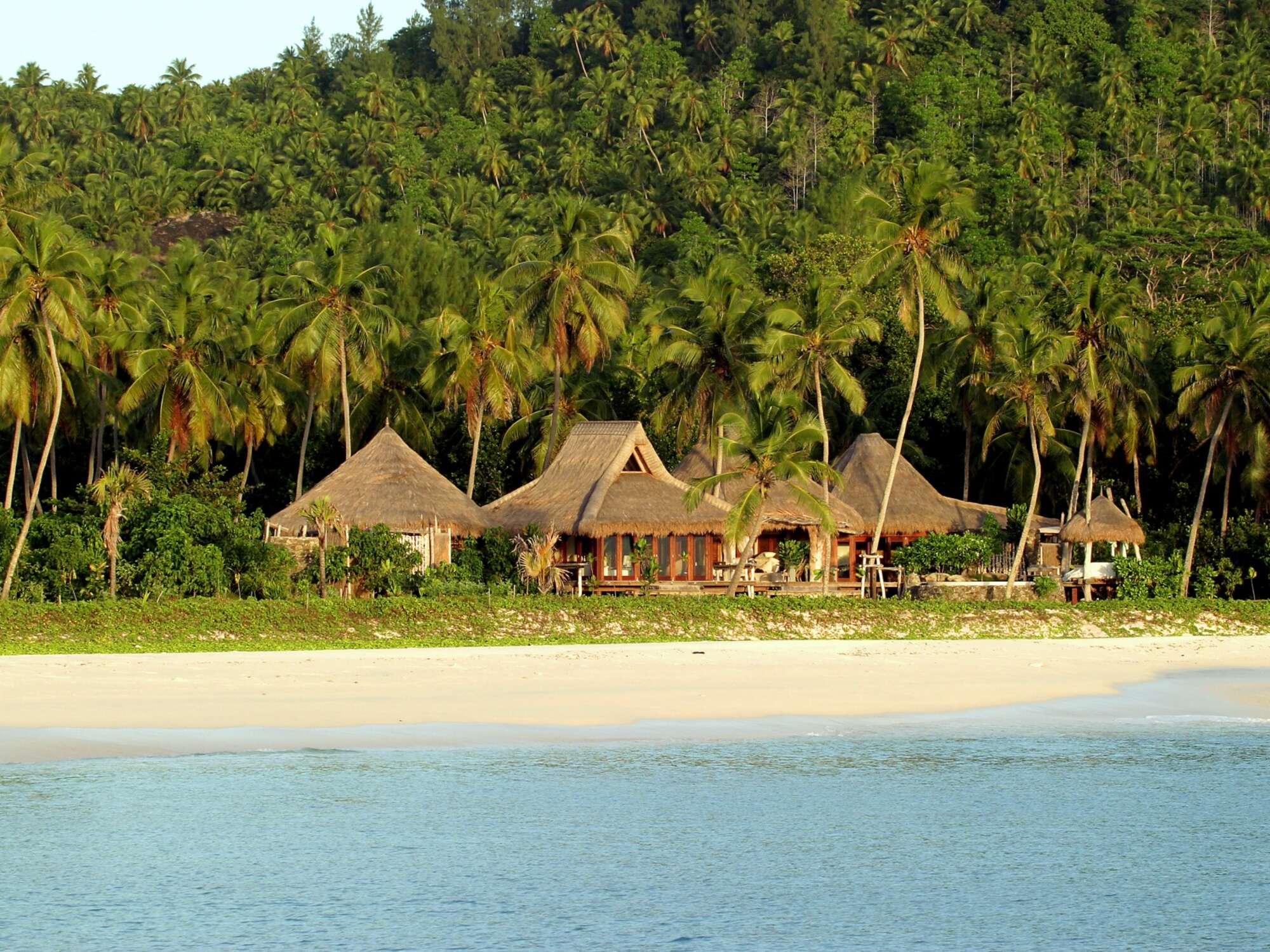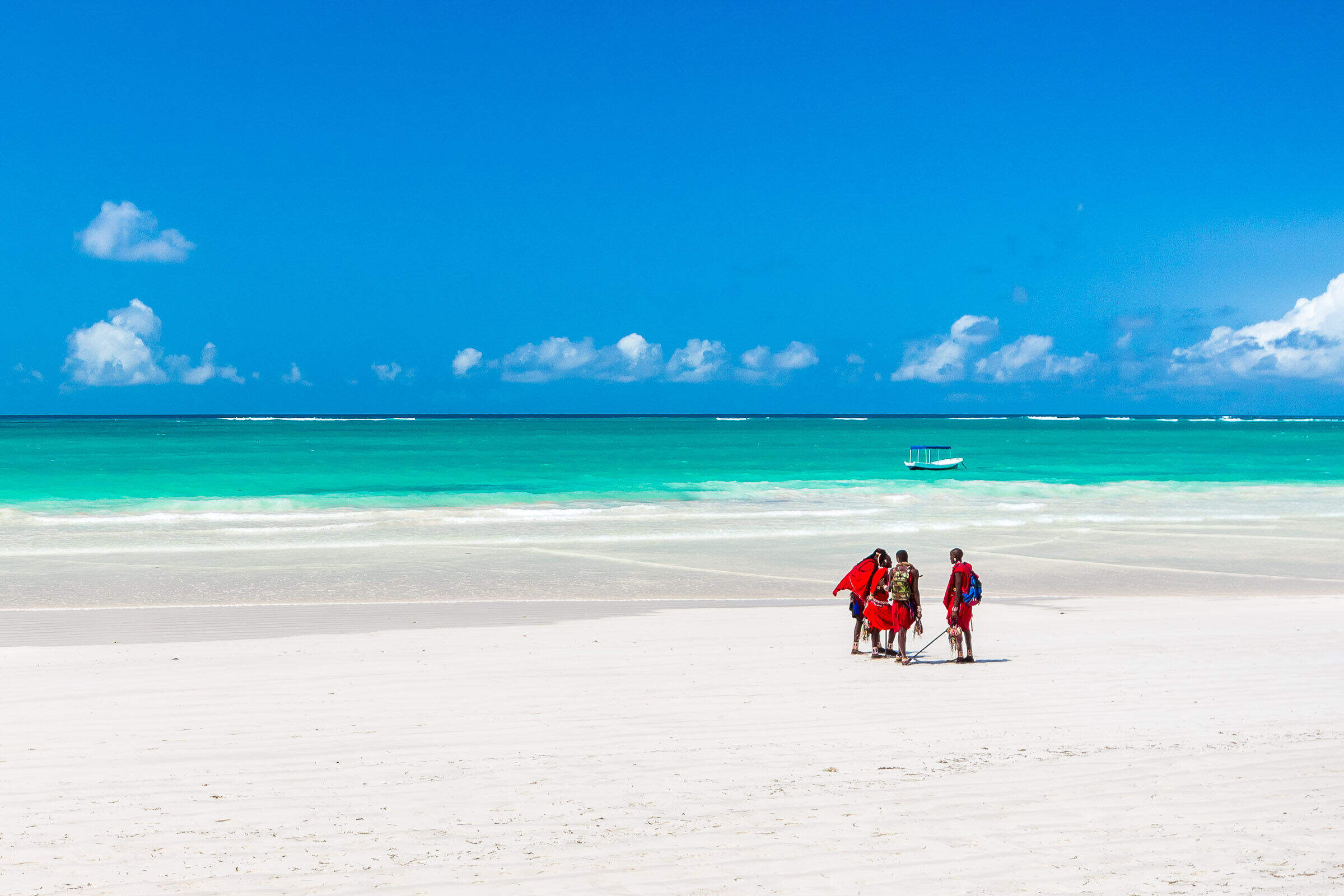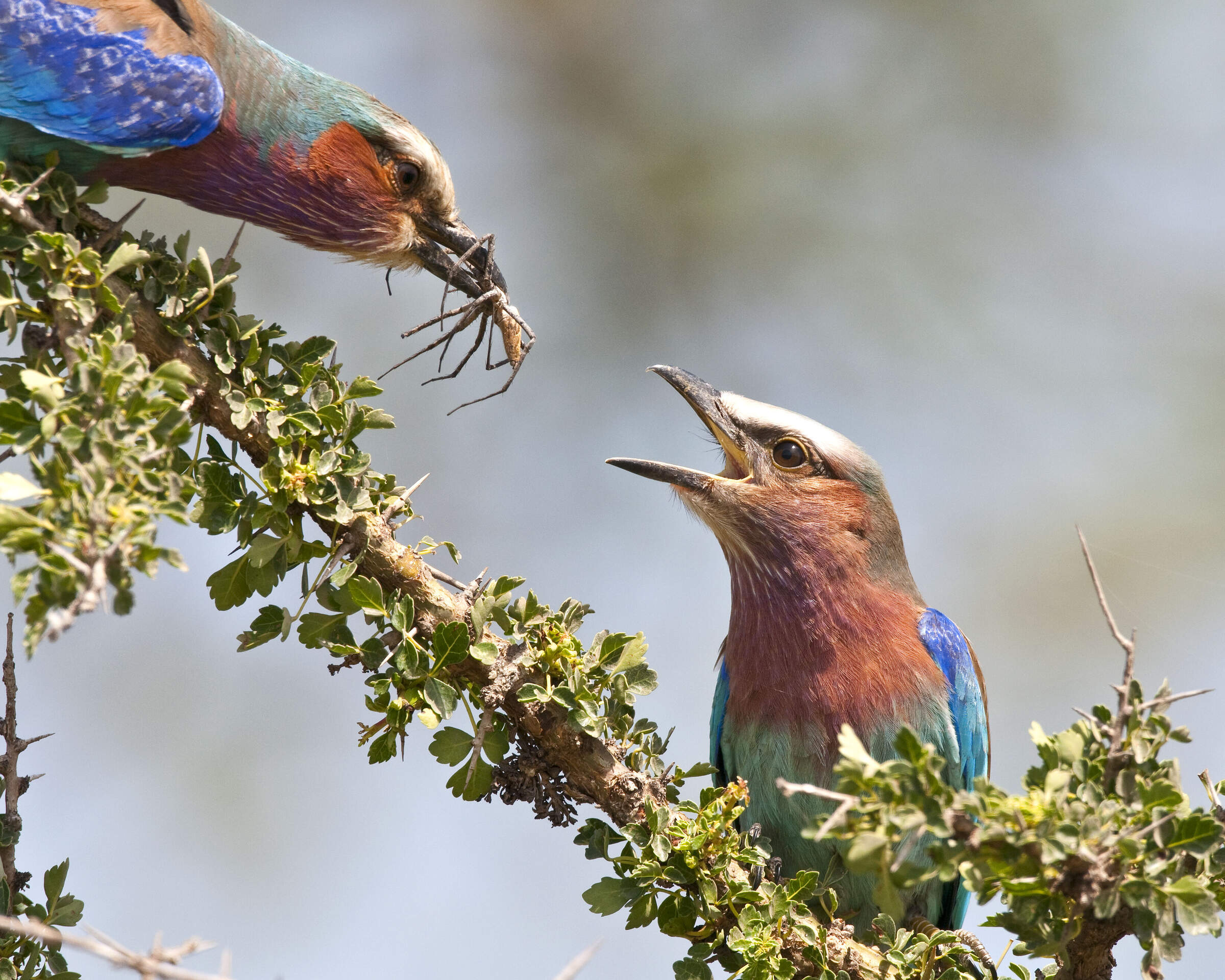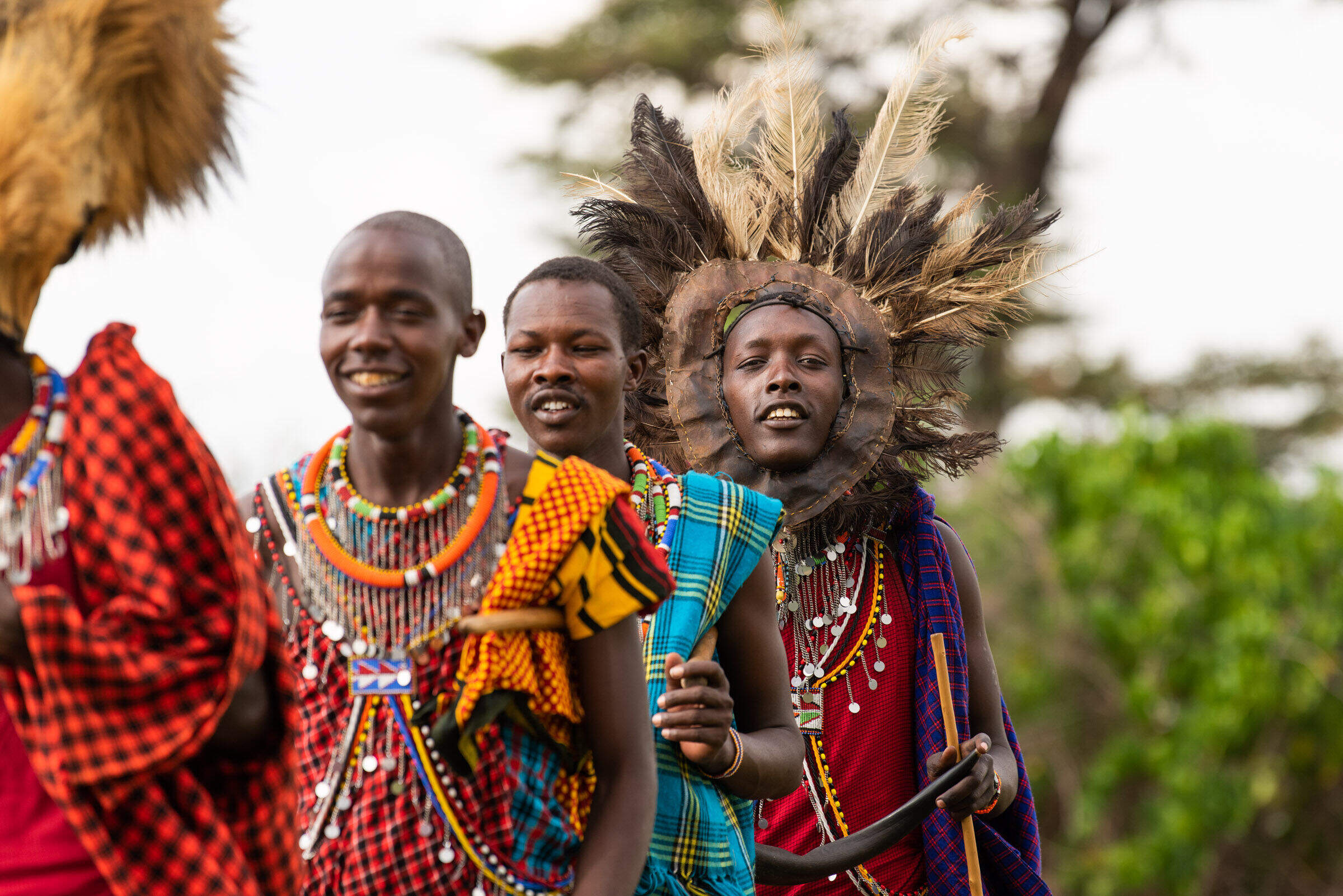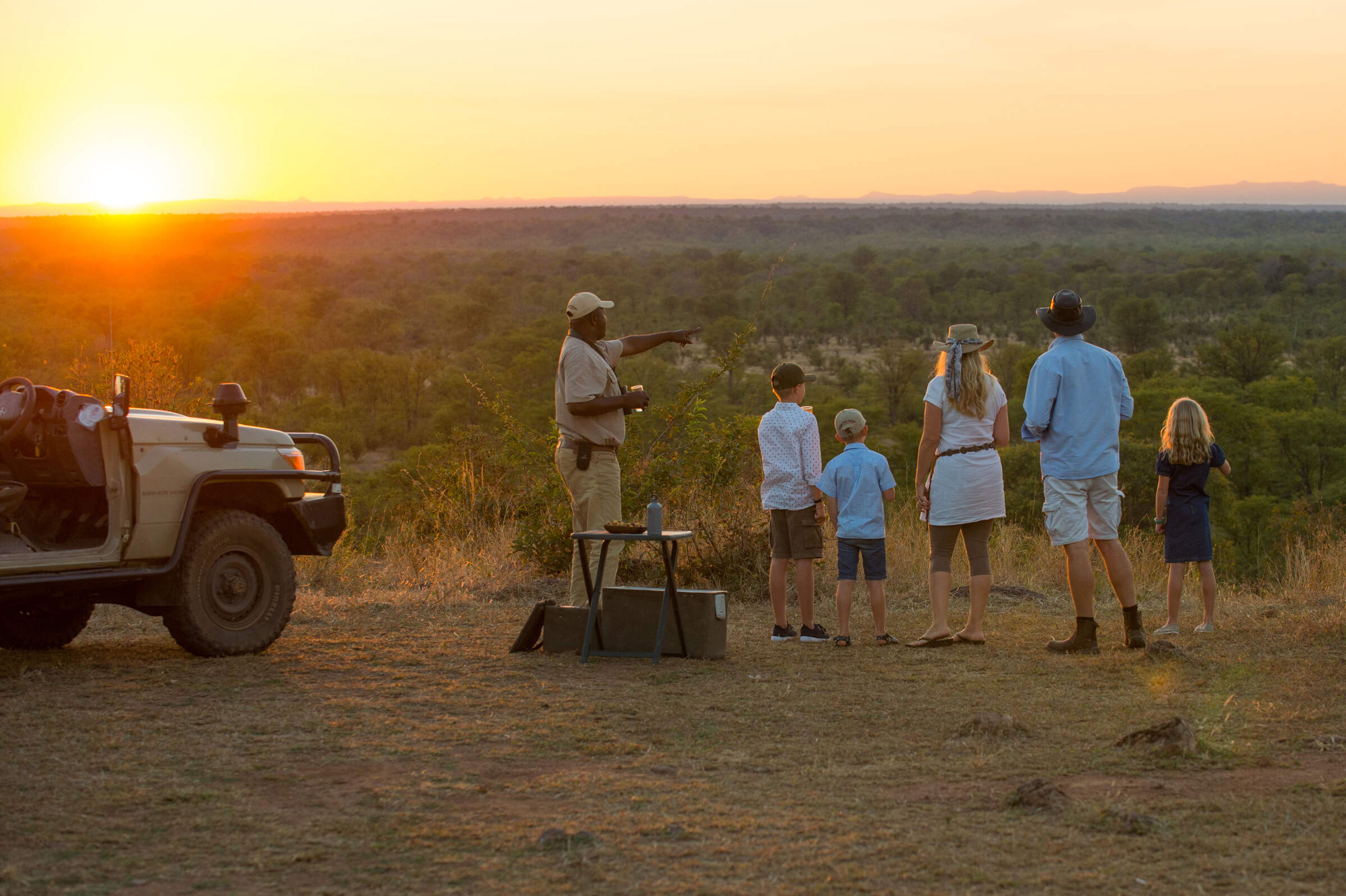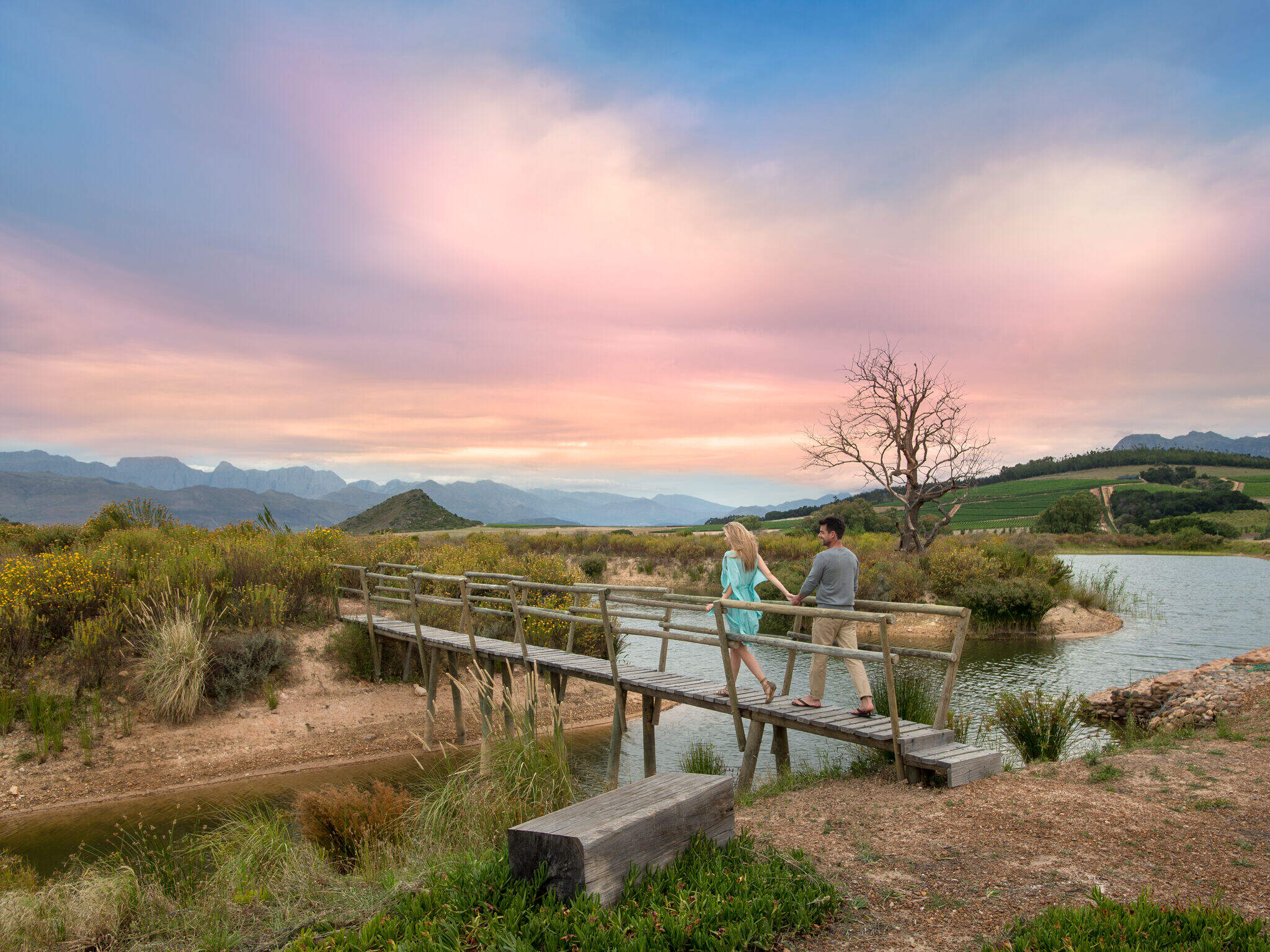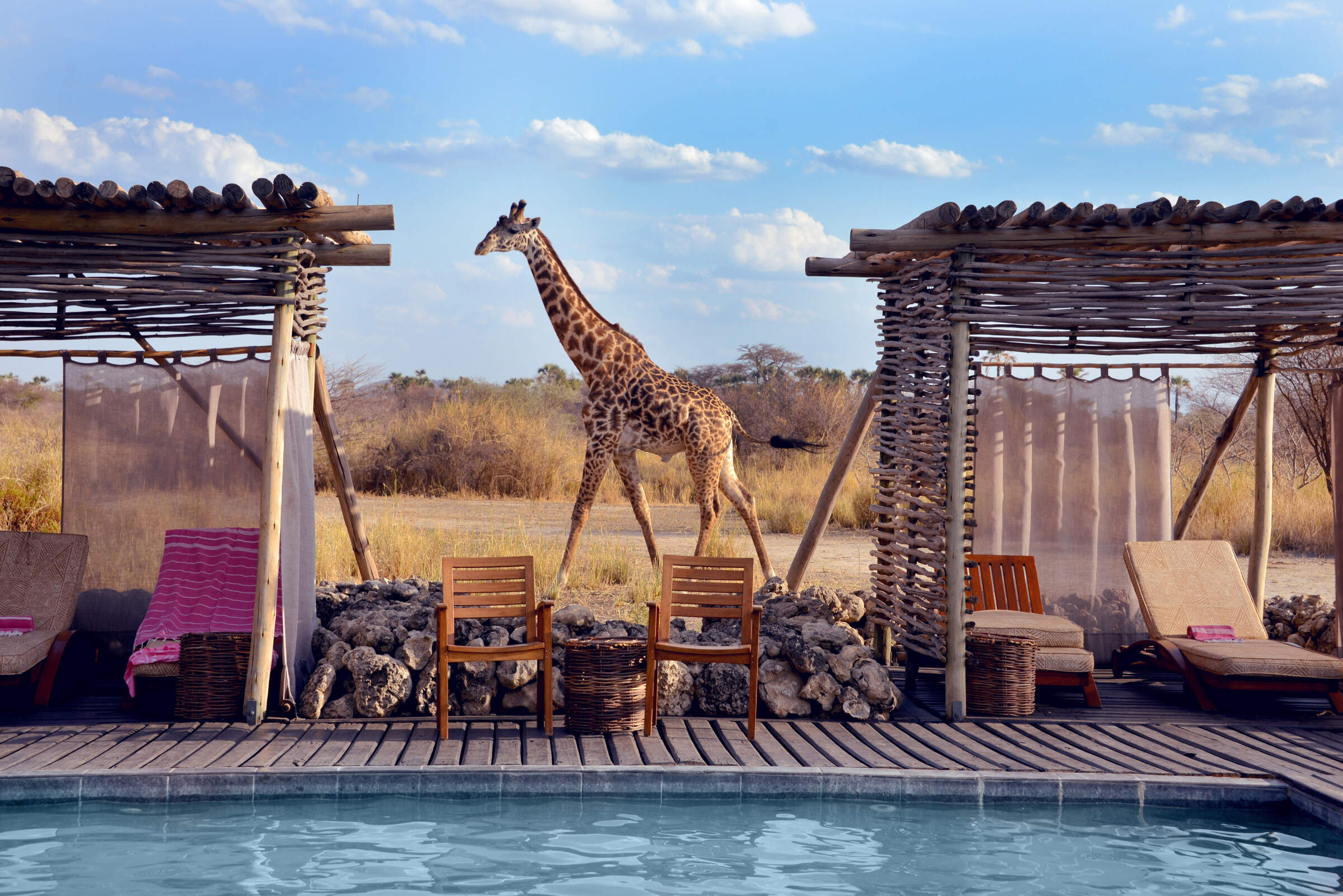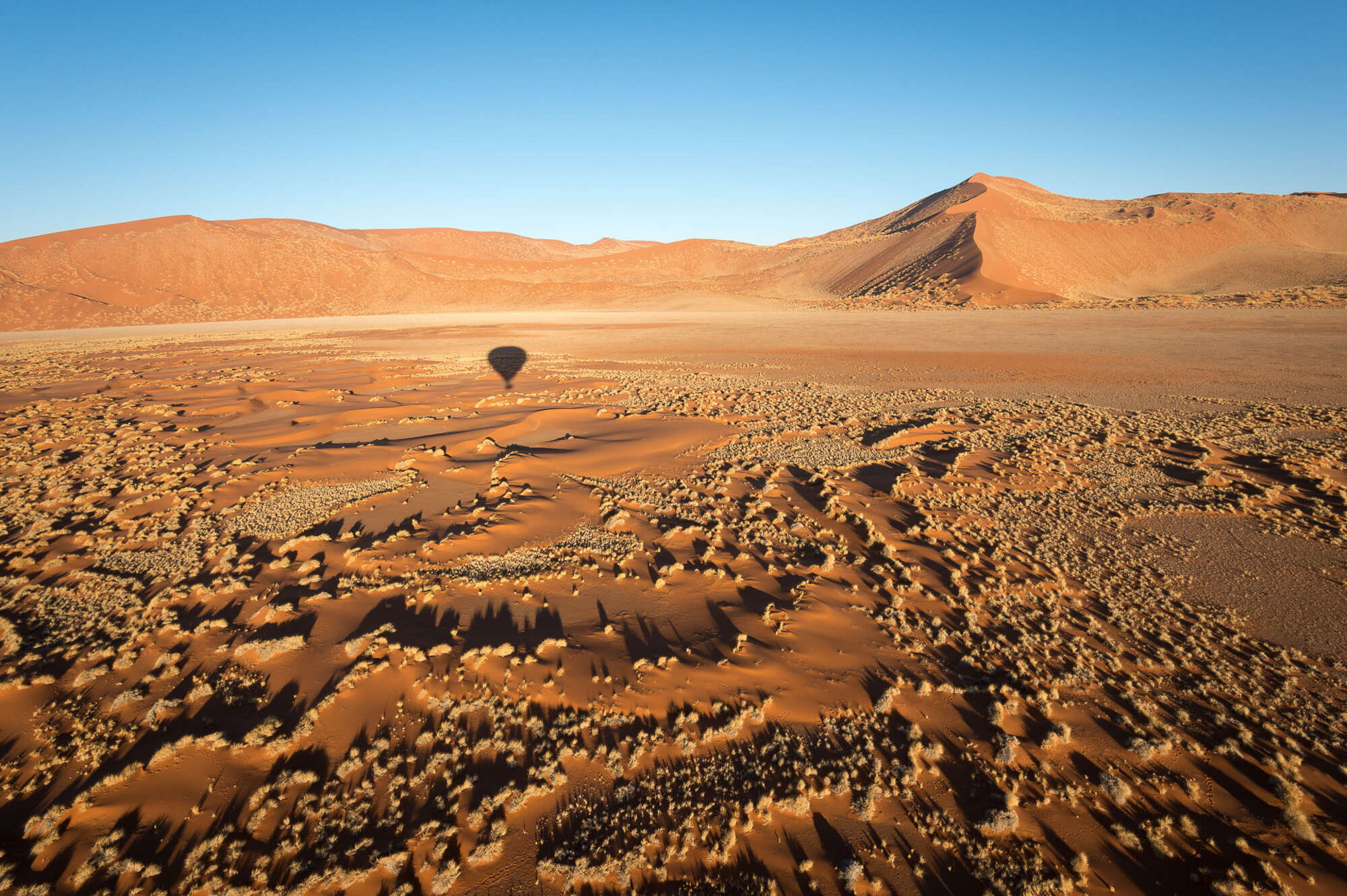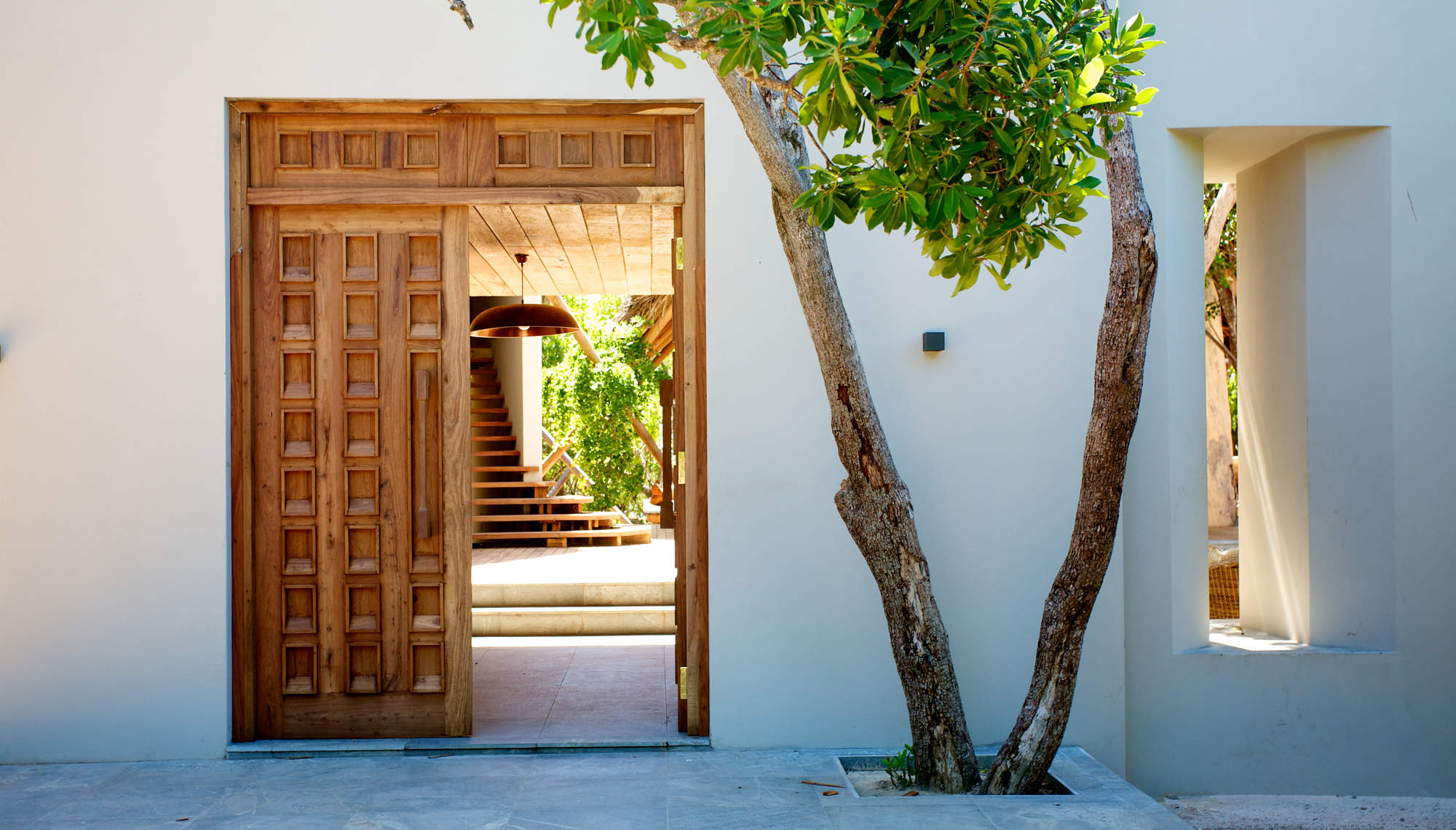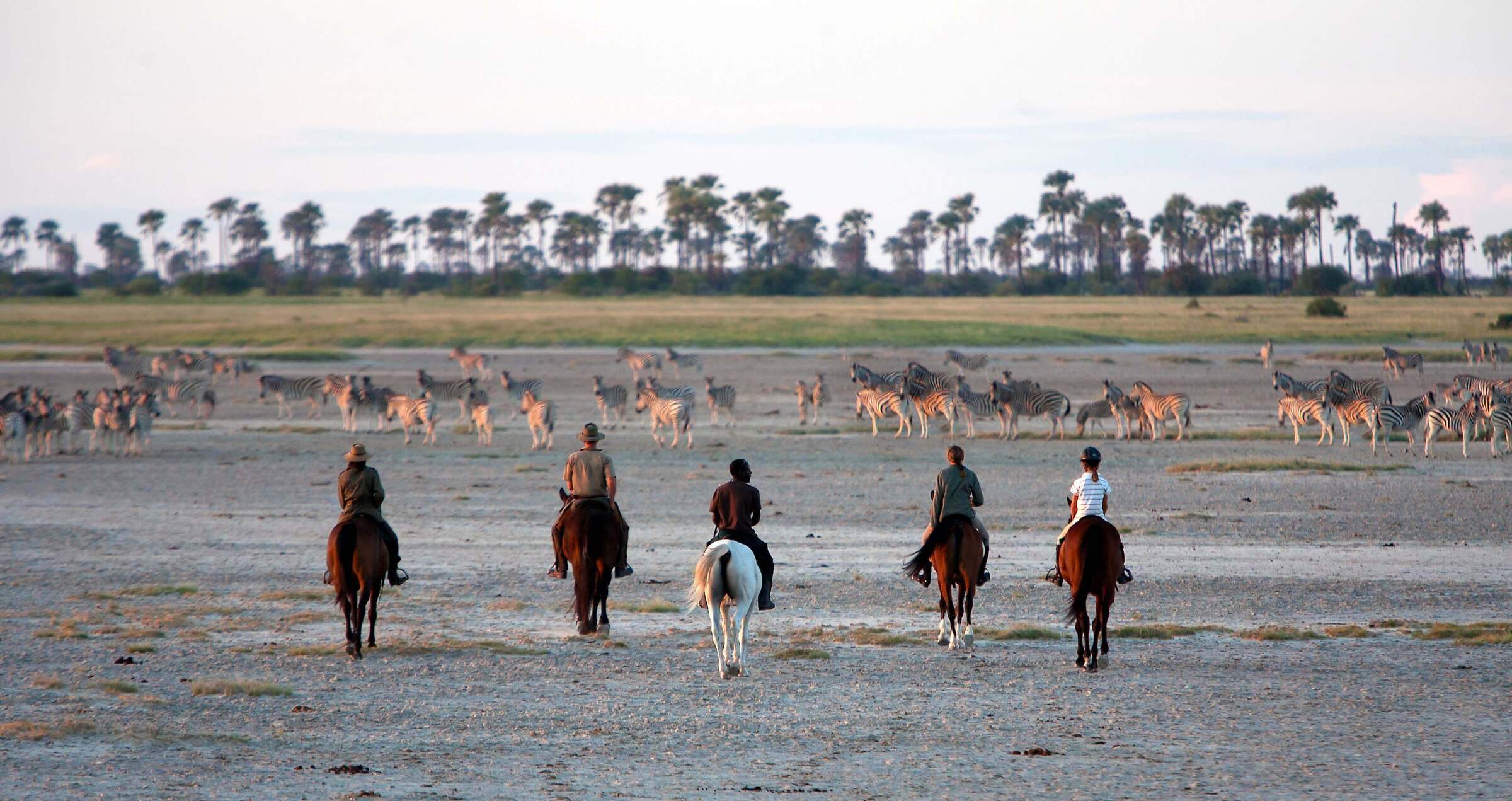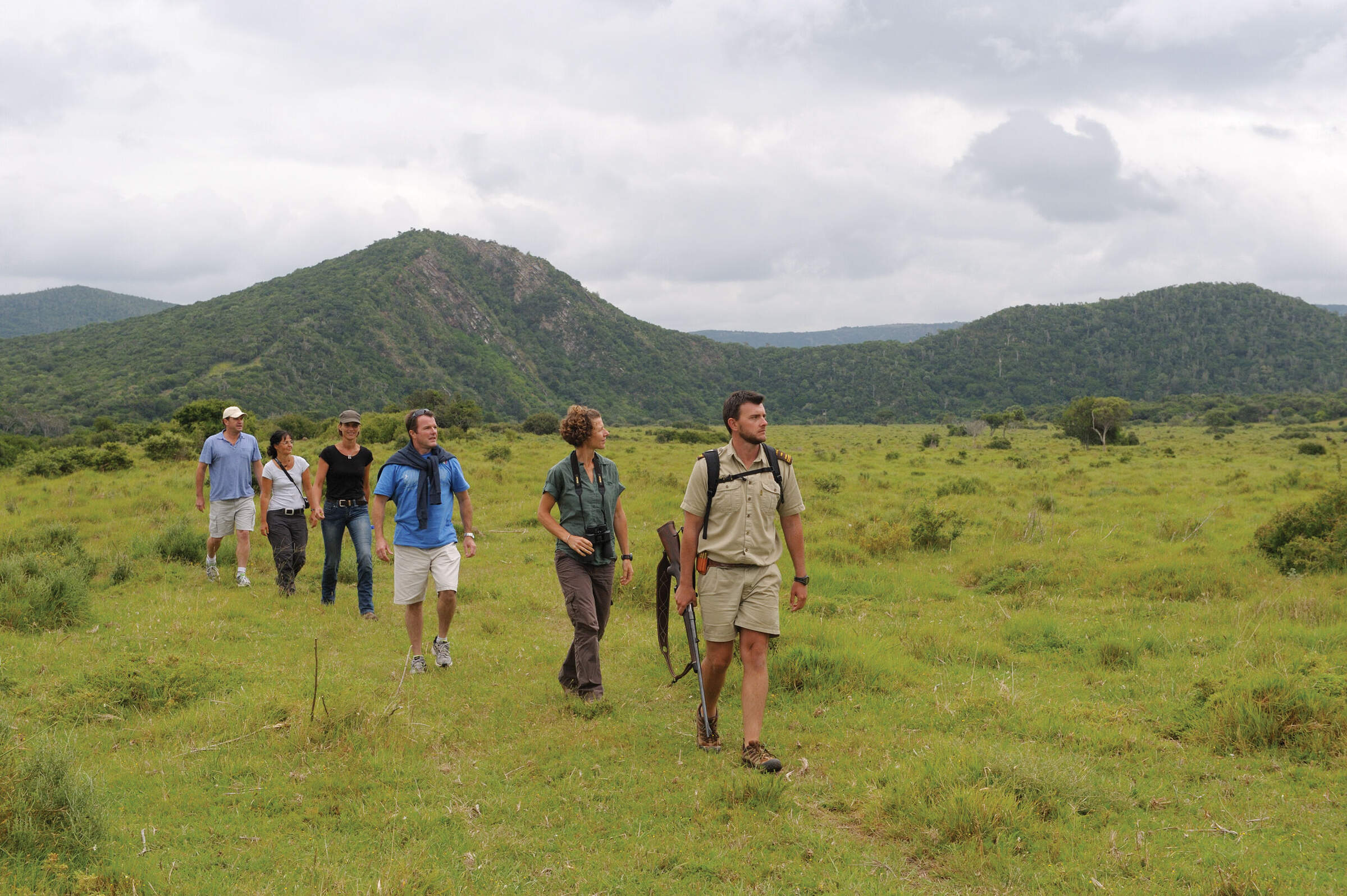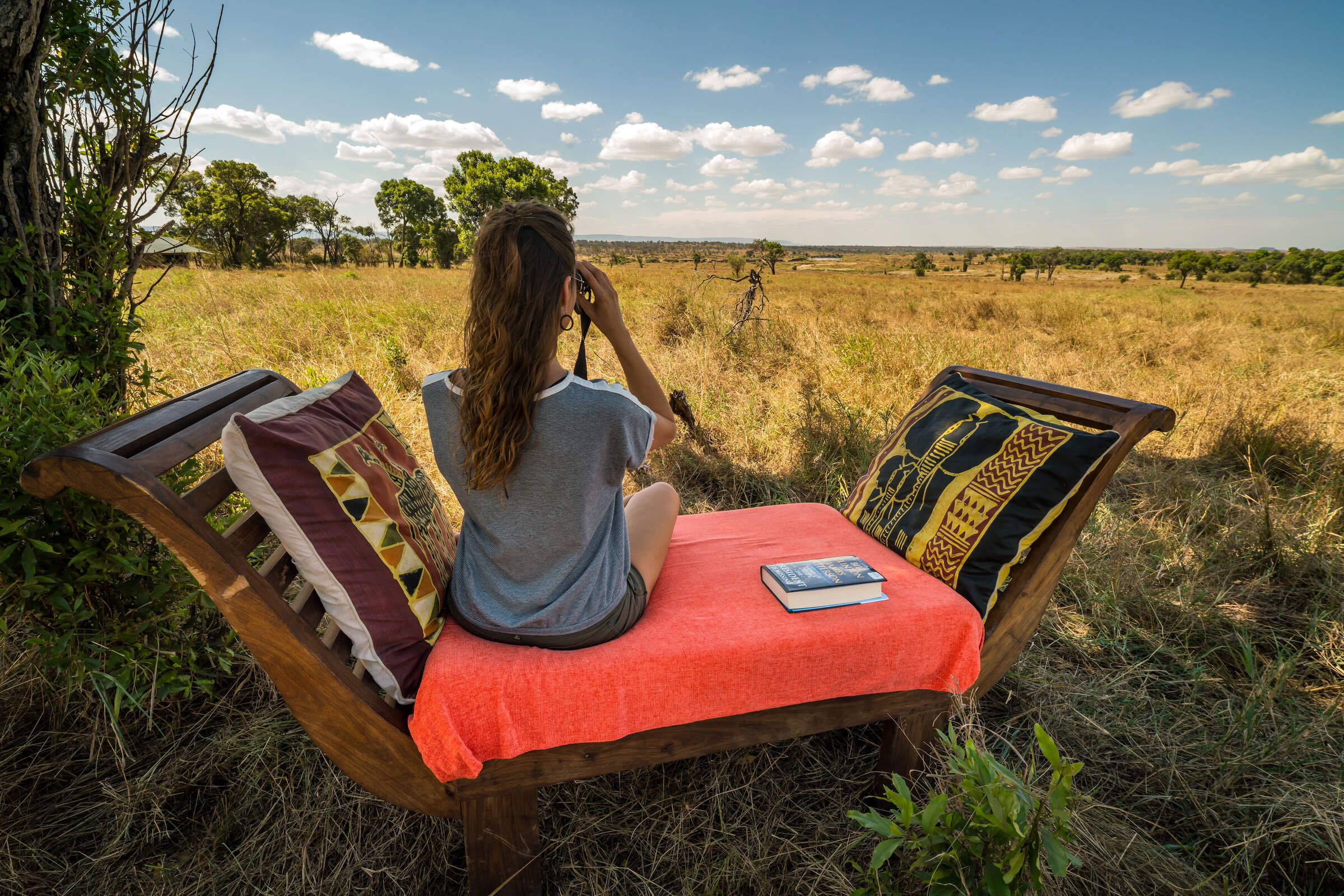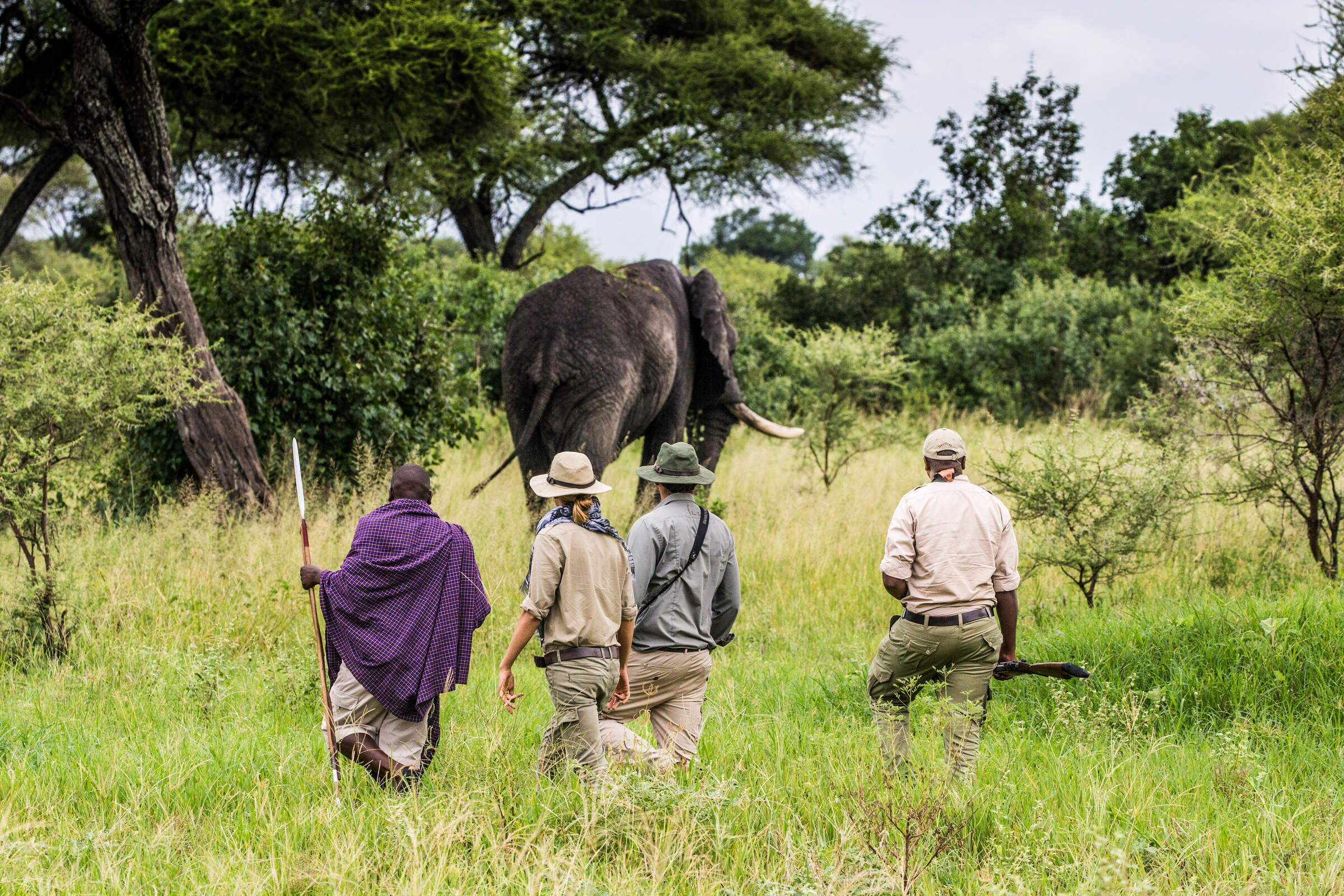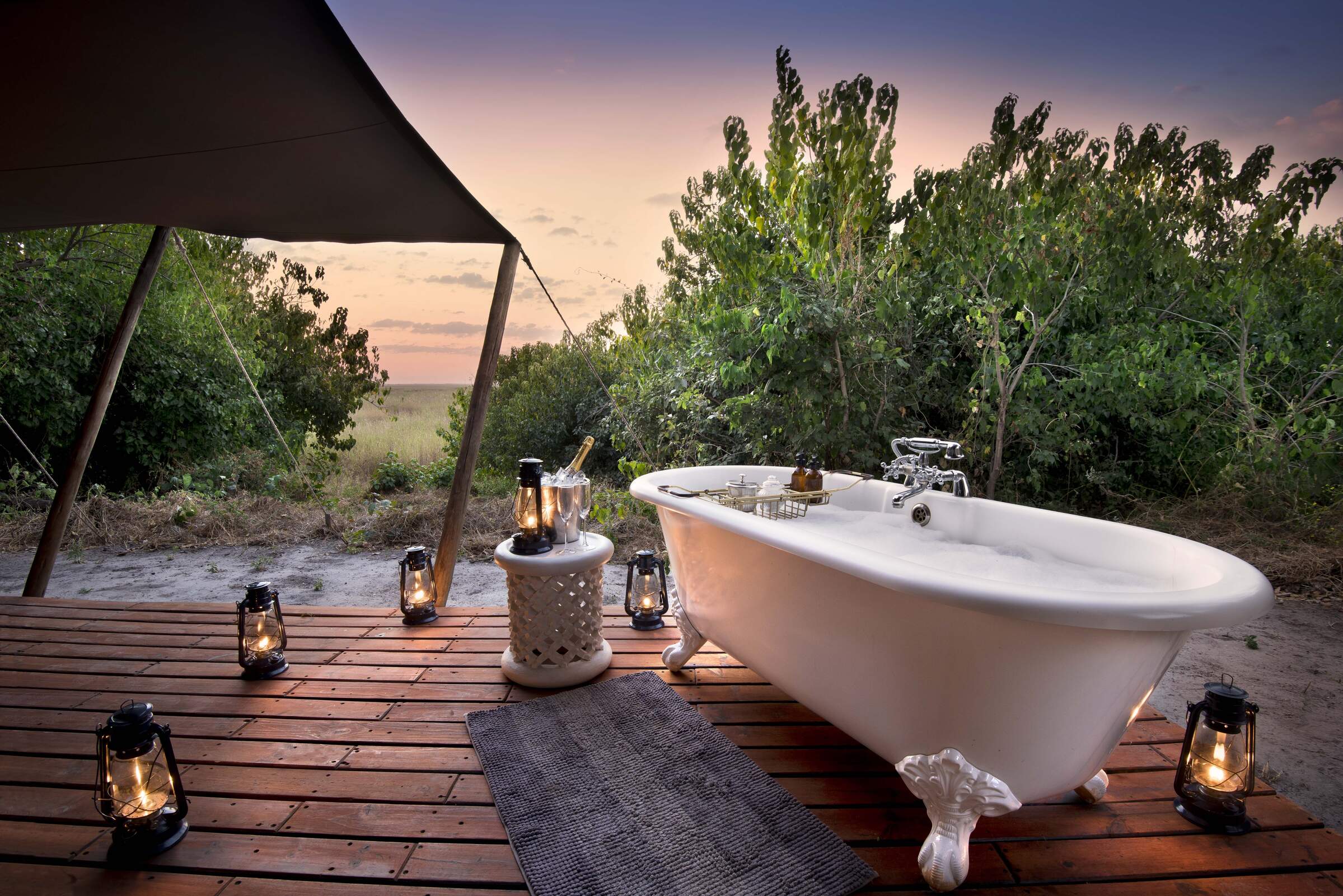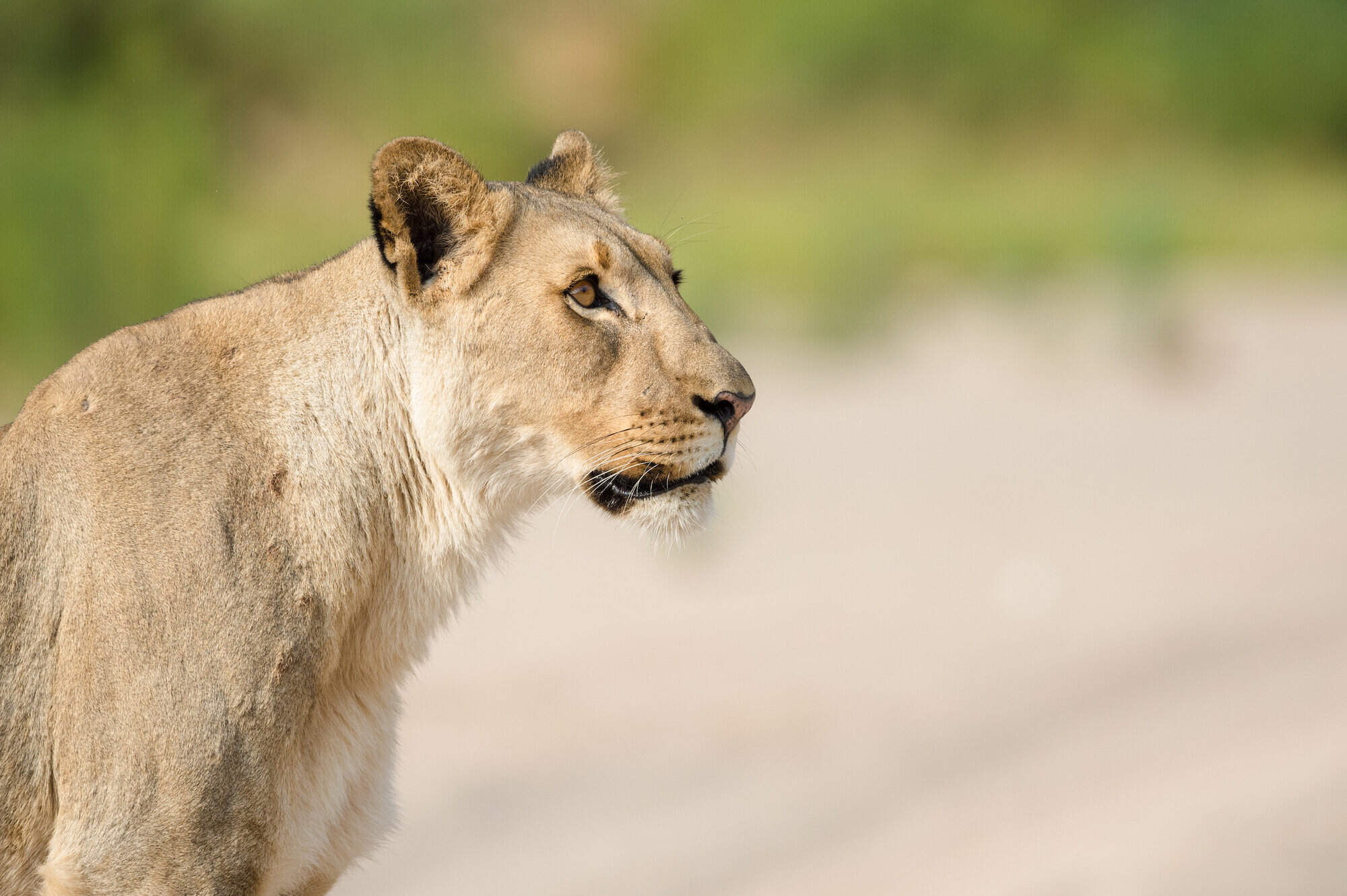Dive into Africa’s Underwater Worlds
There’s a special kind of magic in slipping beneath the surface and entering an entirely different realm: a world of coral gardens, sunlit sandbanks, and darting flashes of colour. Whether you’re floating above schools of tropical fish, drifting alongside a green turtle on a coral wall, or watching a huge whale shark cruise past in the blue, Africa’s underwater experiences are every bit as exhilarating as a big game encounter on land.
With coastlines that stretch from the Indian Ocean to the Atlantic, and picture-perfect islands in tropical seas, Africa offers some of the most biodiverse and least crowded dive sites on the planet. And it’s not just about saltwater. In Lake Malawi, you can snorkel in gin-clear freshwater among endemic cichlids, watching their kaleidoscopic colours flicker across rocky reefs.
Like safari, no two diving or snorkelling adventures are ever quite the same. One day you might be gently exploring a shallow reef with just mask and fins; the next you’re descending alongside a certified dive guide to explore deep bommies and drop-offs. You might be hopping aboard a traditional dhow in Zanzibar or jumping straight off the beach in the Bazaruto archipelago. There are chances to snorkel with turtles in Kenya, dive with rays and reef sharks in the Seychelles, or dive the dramatic coral walls off Pemba.
For beginners, there are warm, safe, shallow waters ideal for learning to dive. For seasoned divers, the adventure lies in discovering remote reefs, vertical walls, and marine reserves that see few other visitors. As always, the key to a great trip lies in choosing the right location for the season, and the right lodge or dive operator to match your level, confidence, and sense of adventure.
At Expert Africa, we’ve handpicked the lodges and destinations that offer not just incredible marine life, but expert tuition, easy logistics, and stunning settings both above and below the waves.
Whether you’re an Advanced Diver or want to take your first diving qualification, a keen snorkeller or simply curious to explore, we can help you design a trip that transitions effortlessly from safari to sea, or it entirely by the water.
To help you get started, we’ve created a Collection of Diving & Snorkelling holidays that combine spectacular underwater encounters with exceptional places to stay. Whether you’re dreaming of technicolour reefs or freshwater clarity, these water-based holidays are designed to inspire and to immerse you in Africa’s most surprising wilderness: the one beneath the surface.
The Ultimate Collection of Diving & Snorkelling Safaris in Africa
Our most recent reviews of diving & snorkelling holidays in Africa
Detailed, un-edited reviews from our Africa travellers whose trips we tailored towards diving & snorkelling holidays. Click below to read the traveller's full review, and see all the reviews of our Africa holidays here.
FREQUENTLY ASKED QUESTIONS
Our Guide to Diving and Snorkelling in Africa
Where are Africa’s best diving and snorkelling destinations?
Zanzibar, Tanzania
Zanzibar offers a wonderful mix of accessible diving and vibrant marine life. Expect colourful coral gardens, schools of reef fish, and occasional sightings of turtles, dolphins, and reef sharks. The diving is generally easy, making it ideal for beginners and mixed-experience groups. Sites like Mnemba Atoll are especially popular for their clear waters and healthy reefs.
Mafia Island, Tanzania
Mafia Island is renowned for its protected marine park, one of the richest ecosystems in East Africa. Diving here brings you face to face with huge groupers, giant rays, and an abundance of macro life like nudibranchs and seahorses. Between October and February, it's one of the best places in Africa to snorkel or dive with whale sharks in shallow, clear waters.
Pemba Island, Tanzania
Pemba is a gem for experienced divers, with dramatic walls, plunge-offs, and drift dives along the Pemba Channel. Expect immense coral gardens, large pelagics, and few other divers. Visibility is excellent, and the reefs are some of the least disturbed in East Africa, offering a real sense of exploration and adventure.
Kenya’s Coast
Kenya’s coastline combines excellent reef diving with the opportunity to see bigger marine life. At Watamu Marine Park and Diani Beach, you’ll find coral gardens, turtles, and reef sharks. Seasonal highlights include whale shark sightings (December–March) and the chance to dive with giant manta rays.
Mozambique’s Bazaruto Archipelago
The Bazaruto Archipelago offers some of the finest warm-water diving in Africa. Dive sites here feature spectacular coral reefs, large shoals of snapper and barracuda, and frequent encounters with dolphins, turtles, and sometimes dugongs. Visibility is usually very good, and the marine biodiversity is superb, from tiny nudibranchs to impressive reef sharks.
Lake Malawi
Freshwater diving at Lake Malawi is a totally different experience. Here, you’ll swim among hundreds of colourful endemic cichlids in crystal-clear waters. With no tides, no currents, and astonishing underwater rock formations, it’s a great place for relaxed dives, snorkelling and underwater photography. Pumulani on the lakeshore, and the wonderful Likomo Island camp of Kaya Mawa, offer diving suitable for both beginners and experienced divers, with calm conditions year-round.
Where can I learn to dive in Africa?
Many destinations offer an Open Water Diver course, through PADI, SSI, NAUI or another of the main certifying bodies. These courses combine theory with confined water training and four open-water dives. In several locations, experienced divers are able to embark on further courses if they wish from Underwater Photography to Nitrox diving, and Advanced Diver qualifications.
Some of the best places to learn include:
• Mafia Island, Tanzania: Home to a protected marine park teeming with life, Mafia is one of the best locations in East Africa for beginner divers. Calm, shallow waters and excellent visibility make it an ideal spot for early training and relaxed first dives. Between October and February, you may also be able to swim with whale sharks.
• Zanzibar: A popular option for travellers combining safari with beach time, Zanzibar’s dive centres, especially around Mnemba Atoll and Nungwi — offer full PADI courses. Many beach resorts include an introductory pool session so you can get comfortable with the equipment in a safe, shallow setting before heading out into the sea.
• Bazaruto Archipelago, Mozambique: This pristine island group offers fantastic beginner-friendly diving with warm, clear waters and a range of sites that cater to all levels. Instructors here are well-versed in helping first-time divers gain confidence and certification in a tropical paradise.
• Kenya’s Coast: Resorts around Diani Beach and Watamu have long offered beginner dive training, with on-site pools and calm ocean conditions perfect for learning.
Our Top Tip for Learning to Dive: To get the most out of your trip, we highly recommend completing the theory component of your PADI or SSI certification course online via e-learning before you travel. That way, you can reduce classroom sessions while on holiday and focus on what really matters: getting underwater and discovering Africa’s vibrant coral reefs, colourful fish life, and fascinating marine ecosystems.
Whether you're looking for a gentle introduction or a full certification course, we can recommend trusted dive schools and lodges with experienced instructors who’ll guide you through every step of the process.
Can we go diving or snorkelling with our children?
Snorkelling is wonderfully inclusive and a great way to introduce children to marine life. In calm, shallow waters like those at Diani Beach in Kenya or off Zanzibar’s East Coast, even young children can safely peer down at a kaleidoscope of reef fish under adult supervision. Many family-friendly lodges provide child-sized snorkelling gear, life jackets, and in a few places there are even glass-bottom boat trips for those not ready to snorkel on their own. Some also offer guided reef walks at low tide, where children can spot starfish, sea cucumbers, and other fascinating marine creatures in the shallows.
For children aged 10 and up, the PADI Junior Open Water course opens the door to scuba diving. This is a particularly thrilling milestone for many young teenagers: the excitement of learning a new skill, the independence of completing dives, and the awe of meeting a turtle or gliding above a reef is hard to beat. Add in a Go-Pro to capture the adventure on film and it’s a guaranteed crowd-pleaser! Courses are widely available at lodges such as Kinondo Kwetu and on Mafia Island, where warm, clear, and relatively shallow waters provide an ideal learning environment.
For children aged 8-10 years old, several of the beach lodges and dive centres on Zanzibar and along the Kenyan coast, offer Bubble Maker dives, where they can try on the scuba kit and experience low-level diving in a swimming pool or in shallow water near the shore. It's a great introduction for children who are comfortable in the water. Younger children might not be ready for diving yet, but there’s still plenty you can do to nurture their curiosity before donning a mask to snorkel. Before you travel, we recommend:
• Visiting your local swimming pool to boost their confidence in the water.
• Looking through books or reef fish ID charts together to encourage familiarity with what’s underwater. It also help them spot and identify a clownfish or parrotfish on their own, which is hugely exciting! Everyone wants to Find Nemo, regardless of their age!
• Watching family-friendly documentaries about coral reefs and ocean life to spark interest and deepen understanding is also a great idea.
In freshwater destinations like Lake Malawi, snorkelling is an especially safe and easy option. There are no tides or currents, and children can swim among hundreds of colourful cichlid fish in calm, bath-like waters.
Our team has personal experience travelling with children of all ages and can help guide you to marine lodges that are both child-friendly and inspiring. Whether your goal is learning to dive as a family, snorkelling straight off the beach, or simply sharing the joy of discovery underwater, we’ll make sure your marine adventure is safe, exciting, and unforgettable for all ages.
When is the best time of year for diving and snorkelling in Africa?
Bazaruto Archipelago, Mozambique
Best time: May to November
Diving is possible in warm water year-round, but the dry season of May to November is prime dive time, with clear skies and good underwater visibility. There are frequent sightings of dolphins, turtles, sharks, and a fantastic array of reef fish. There’s great coral diversity and dugongs are present in the marine park. June to October is also whale-watching season.
Kenya’s coast
Best time: November to March
Kenya’s diving conditions are best during the dry northeast monsoon, when visibility improves, and the sea is at its calmest. This is also when you’ll have the best chance of seeing whale sharks and manta rays, particularly around Diani Beach, Watamu, and Kisite Marine Park. April and May bring rains and rougher seas, limiting diving.
Lake Malawi
Best time: May to October (dry season)
With no tides or currents, Lake Malawi is swimmable and diveable all year, but visibility is at its clearest during the dry winter months, and we wouldn't recommend it in the high rains. Between May and October, expect bright, sunny weather and calm freshwater conditions, perfect for snorkelling among endemic cichlids and enjoying relaxed diving. If you're after a special sighting, between September - October, the cichlids are mating - building little pits and dancing, which is pretty cool to see. And keep and eye out for the carrying their babies in their mouth after spawning!
Mafia Island, Tanzania
Best time: October to March
This is the top diving season, with warm, calm seas and excellent visibility. It also coincides with the arrival of whale sharks, which can often be seen while snorkelling in shallow waters between October and February. These gentle giants are one of Mafia’s biggest marine highlights.
Zanzibar and Pemba Island
Best diving seasons: January to March then June to October &
Zanzibar and Pemba offer two excellent windows for diving:
• June to October brings cooler, drier conditions with excellent visibility on the northern and western coasts.
• January to March offers warmer, calmer seas, particularly good on the southern and eastern coasts, such as around Mnemba Atoll and Chumbe Island.
Visibility and water clarity can drop during the long rains (April–May), making this a less ideal time for underwater exploration.
If you're dreaming of something specific, whether it's drift diving over coral walls, snorkelling with turtles, or swimming beside whale sharks, we’ll help you choose the right destination and season for your experience. Our advice is always tailored to your diving ability, wildlife interests, and travel style, so you can make the most of your time in the water.
What kind of marine life might I see?
Here’s what you might encounter:
Reef Fish
Almost everywhere, from Zanzibar and Mozambique to Kenya’s southern coast, offers vibrant coral gardens alive with butterflyfish, angelfish, parrotfish, triggerfish, clownfish, and damselfish. These colourful residents are the mainstay of most reef systems and provide a brilliant introduction to tropical diving and snorkelling.
Sea Turtles
Both green and hawksbill turtles are regularly seen, often gliding past during dives or emerging for breath near snorkellers. Mnemba Atoll off Zanzibar, and the coral reefs of Mafia Island, are particularly good for frequent turtle sightings, including juveniles on reef shelves and adults near drop-offs. And Mozambique has huge loggerhead and leatherbacks, as well as less frequent sightings of green turtles, and olive ridleys: check out our blog post on Mozambique's incredible turtles scene.
Whale Sharks
The world’s largest fish is also one of its gentlest. Mafia Island offers one of Africa’s best chances for close, respectful encounters, especially from October to February, when whale sharks congregate to feed in plankton-rich waters. These interactions often happen while snorkelling in calm seas; no diving required.
Dolphins
Spinner and bottlenose dolphins are frequently spotted on boat rides or even during dives, especially around the Bazaruto Archipelago in Mozambique, and the coasts of Zanzibar and Pemba. Encounters can be spontaneous and thrilling, a pod passing beneath your fins or leaping alongside your boat.
Macro Life
For underwater photographers and lovers of the small and strange, Mafia Island and southern Mozambique are hotspots for nudibranchs, ghost pipefish, seahorses, and the elusive frogfish. These tiny creatures reward patient observation and thrive on less-disturbed reefs.
Larger Fish & Pelagics
Advanced divers might encounter barracuda, trevally, tuna, grouper, reef sharks, and rays. Pemba Island, with its steep walls and strong currents, is particularly good for pelagic sightings, while Bazaruto’s outer reefs can deliver exciting drift dives with larger marine life.
Freshwater Fish
Diving in Lake Malawi is a rare and beautiful experience. The lake is home to more than 800 species of colourful cichlids, most of which are endemic. You’ll find yourself floating through a kaleidoscope of electric blues, reds, and yellows, among dramatic underwater rock formations. There’s no salt, no tides, just clear, warm freshwater for peaceful snorkelling or scuba.
If you’re dreaming of seeing something specific, from turtle hatchlings to reef sharks, or from macro marvels to megafauna, we’ll help time your trip and choose a location that maximises your chances, while also fitting your level of diving or snorkelling experience.
The Best Camps and Lodges for Diving and Snorkelling in Africa
From whale sharks off Mafia Island to coral gardens in the Seychelles, Africa’s top beach lodges offer exceptional diving and snorkelling in spectacular, uncrowded settings.
Whether you’re exploring vibrant reefs from Chole Mjini, diving the walls of Fundu Lagoon, or slipping into the water straight from the beach at Kinondo Kwetu, these lodges blend marine adventure with serious style.
For barefoot luxury and big blue views, Azura Benguerra is a diver’s dream, while Four Seasons Desroches offers private-island glamour and sensational underwater excursions. Even inland, Kaya Mawa delivers freshwater diving among kaleidoscopic cichlids in Lake Malawi’s clear waters.
Each lodge here has been chosen for its outstanding marine access, expert dive partners, and magical location. Whether you're snorkelling straight from the shore or diving dramatic drop-offs, we’ll match you with the perfect spot to dive in.
Diving and Snorkelling across Africa
Whether you’re snorkelling with whale sharks off Mafia Island, diving dramatic walls in Pemba, or swimming through freshwater shoals in Lake Malawi, the continent offers unforgettable underwater adventures.
Our curated Diving & Snorkelling Collection features trips for all levels, from children’s Bubble Maker taster dives in Kenya, to gentle reef snorkelling off Zanzibar and full-day dive safaris in Mozambique.
Expect warm seas, rich marine life, expert guides and laid-back beach camps in wild, beautiful locations.
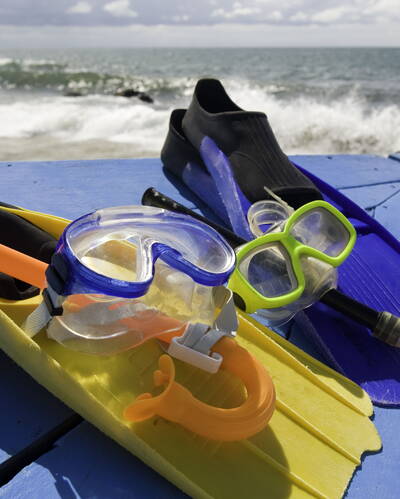
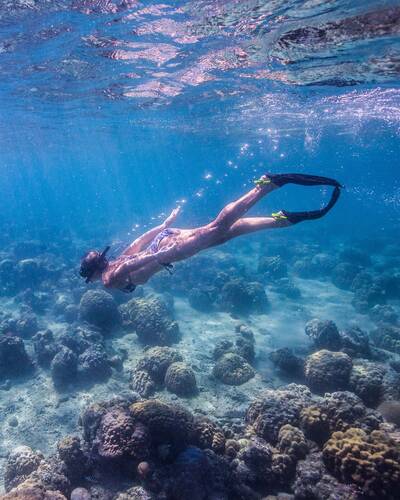
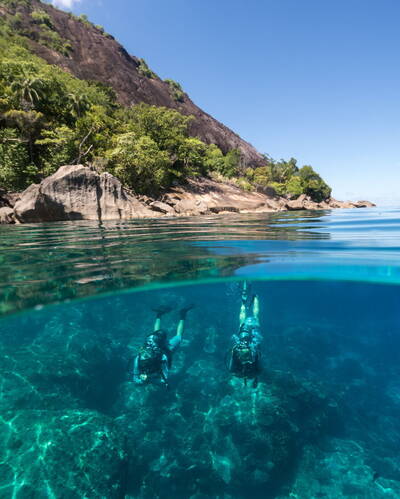
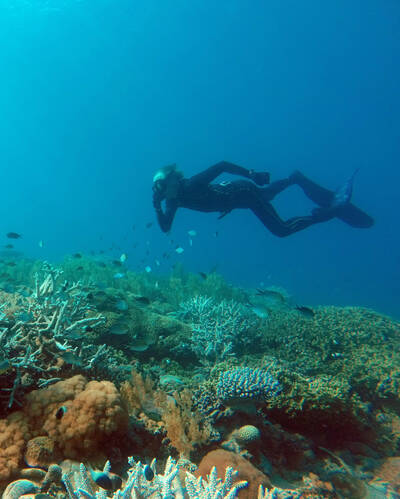
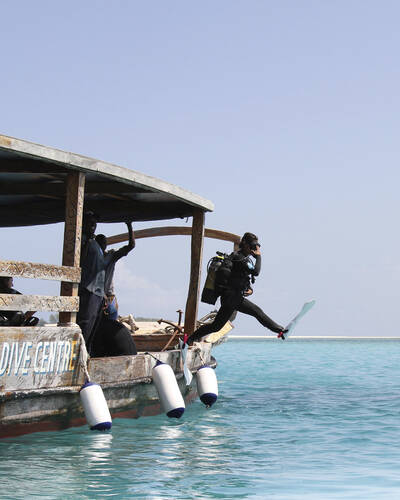
Africa - Curated Holiday Collections for Your Interests
Discover our Holiday Collections, designed for travellers with passion! Love wildlife, luxury retreats or learning new skills – we’ve got a selection of trips to inspire you.

Looking for inspiration on where to travel next?
Visit our trip chooser to explore your options and find inspiration for your perfect African adventure
Inspire me





